Episodes

Saturday Jun 05, 2021
Episode 656: Kenya Kiriga Estate AB
Saturday Jun 05, 2021
Saturday Jun 05, 2021
Kiriga Estate sits between 1,550 and 1,650 metres above sea level. It is approximately five kilometres from Thika town, which is an industrial town in the central province of Kenya. It's four kilometres from Blue Posts hotel, which has the famous Chania and Thika falls. Thika lies 50 kilometres northeast of Nairobi.
Administratively, the Kiriga coffee estate is in the Gatanga constituency of Muranga county, and it's separated from Kiambu county by the Chania river.
Kiriga coffee is predominantly SL28 variety (notable for its world-renowned cup quality). The farm has an estimated two hectares of Ruiru 11 variety (which has improved resistance to coffee berry disease and leaf rust); some K7 variety (similar characteristics as SL28, but with better resistance to leaf rust compared to SL28); and a field of the newest Batian variety. About 60% of the coffee that the estate produces is AA/AB.
Like any natural product, each coffee bean is different - some bigger, some smaller, some longer, some rounder...that's lead coffee buyers many years ago to begin separating the coffee by the size of the bean.
Throughout the world, this is done by screens - like a stack of flat colanders, with each layer having slightly smaller holes in it than the layer above. Whatever the smallest size a bean passes through, that’s its size. In most places, they’re named by 1/64th inch - so a screen 18+ means all the beans are 18/64th of an inch or bigger. Simple, right?
Well...in Kenya they use the same screens, but give them different names. An “AA” is screen 17 and 18, an “AB” is screen 16 and 15 and anything smaller (but still a whole bean) is a “C”. There’s one more class you might have tried - “PB” or Peaberry. That’s a bit different again, but it’s usually separated from the other beans because the round cross-section of a peaberry lets it pass through the holes of a screen easily.
This year we will have the AA, AB, C and Peaberry from Kiriga - so big beans, medium beans, little beans and even littler beans! Traditionally, the AA has got the highest prices (they’re about 15-20% of the crop), with AB being a bit cheaper and C going into commodity coffee. However, Brian from Kiriga sent us his C to try the year before last for the first time and we were wow-ed - it’s really sweet and nice - so we began buying it and are super excited to have it again for another year. The Peaberry has previously been included in with the C, due to the similar size and smaller harvests, however this year the two have been separated out and there's enough of it to stand alone!
All coffee activities at Kiriga are carried out at a factory level, from the coffee nursery to all the farm operations (pruning, weed control, nutrition, irrigation, basin digging, disease control, infilling, mulching, and planting). Wet mill operations are also carried out on the factory level. Kiriga delivers both parchment coffee and Mbuni (naturals) to the commercial dry mill for milling and grading, in preparation for sale at coffee auctions and via indirect sale.
In addition to growing coffee the estate also has shoats (sheep and goats), a dairy, and the potential to keep fish. It's all about diversity, and what's more diverse than a 'shoat'?! The estate is also occasionally visited by two hippos, in addition to some bird-life, while also being the home of a family of monkeys.
Blackcurrant jam in a cup. Super sweet with brown sugar and biscuit against the blackcurrant and then a little sprinkle of cocoa nibs on the aftertaste.
- Country: Kenya
- Region: Central Province
- District: Muranga
- Constituency: Gatanga
- Nearest town: Thika
- Estate: Kiriga
- Farmer: Dr Brian Gakunga
- Altitude: 1,550–1,650 m.a.s.l.
- Varietals: SL28 AB & Ruiru 11 AB
- Processing method: Washed
CUPPING NOTES
Blackcurrant jam, brown sugar, biscuit, cocoa nibs
Clean cup: (1–8): 6
Sweetness: (1–8): 6.5
Acidity: (1–8): 6.5
Mouthfeel: (1–8): 6.5
Flavour: (1–8): 6.5
Aftertaste: (1–8): 6
Balance: (1–8): 6.5
Overall: (1–8): 6.5
Correction:(+36): +36
Total (max. 100): 87
Roast Information
Medium - keep it fairly quick to highlight the acidity, or slow it down slightly if you want to develop some more of the jammy sweetness. Either way, finish the roast

Saturday May 29, 2021
Episode 655: Kenya Tegu AA
Saturday May 29, 2021
Saturday May 29, 2021
The Tegu wet mill sits at around 1,700 metres above sea level near the town of Karatina in Nyeri, Kenya. It's rather close to 2 other amazing mills you've probably heard of - Kieni and Karagoto.
It's owned by the Tekangu Coffee Farmers Cooperative Society, which got its name from combining the names of their three mills: Tegu, Karogoto and Ngunguru. It is made up of mainly smallholder farms, each with an average of just 100 trees. Much like Kieni and Karagoto, this mill has seen success in recent years and has secured some really great prices for the farmers that deliver their coffee cherries to it.
Once the coffee cherries are delivered to the farm, they are spread out on a patio for removal of any under-ripe cherries, over-ripe cherries or foreign objects before they head over to the washing station.
The freshly-sorted coffee cherries are then decanted into a hopper, where clean water from the nearby Kirigau Springs is poured over them. This pushes the cherries down between two rotating abrasive slabs which mechanically wash the outer flesh off the cherries, exposing the beans and mucilage.
The beans then pass to a water tank to be sorted (primarily by removal of any floating beans) and the sunken, dense beans are transported into a fermentation tank to be left overnight. The next day, once the mucilage has broken down, water is poured into the fermentation tanks to wash the beans again, and remove any remaining mucilage.
There's an upfront punch of blackcurrant acidity here, which softens out into ripe nectarines. That lingers through towards the finish, where a sweet, golden sugar note hangs through into the aftertaste.
- Country: Kenya
- County: Nyeri
- Nearest town: Karatina
- Mill: Tegu
- Owners: Tekangu Coffee Farmers Cooperative Society
- Contributing farmers: 1,700+
- Altitude: 1,700 m.a.s.l.
- Processing method: Washed
- Varietals: SL28, SL34 and Ruiru 11
- Screen size: AA

Saturday May 22, 2021
Episode 654: Nicaragua Finca San Ramón Washed
Saturday May 22, 2021
Saturday May 22, 2021
Finca San Ramon sits within the Dipilto mountain range, a Nicaraguan nature reserve located close to the border with Honduras.
The farm is run by Donald Efrain Roque, who is the third generation of coffee producers in the Roque Family. Both his grandfather and father were dedicated to coffee, and he is continuing with this beautiful legacy. For his entire life, he has worked with coffee and over this time he has acquired a very special affection and passion for it.
In 2006, Donald Efrain found out about the Cup of Excellence in Nicaragua and he decided to participate in the contest to see how much potential his coffee had. After performing well, he became more motivated than ever to continue improving the quality of his coffee and participated again in COE in 2009 and 2011, where he achieved great results. For him, the biggest change from being a conventional farmer to a specialty coffee farmer was having to train and educate his workers to change their harvesting and processing practices.
Donald has been working with our sourcing partners Caravela for five years now and his point of view on coffee has completely changed since he started producing specialty coffee. Now he is consistently seeking to improve and to become a better farmer. He strongly believes in the potential of specialty coffee in Dipilto, Nueva Segovia and he recommends every single farmer in the region to focus solely on producing a high-quality product.
This coffee is all about the sweetness - think brown sugar and malted milk biscuits crumbled together. There's a fresh red apple which comes along on the finish and lingers into the aftertaste for a lovely easy drinking cup.
- Country: Nicaragua
- Municipality: Dipilto
- Department: Nueva Segovia
- Farm name: San Ramón
- Producers: Donald Efrain Roque López
- Farm size: 40 manzanas (hectares)
- Coffee growing area: 20 hectares
- Altitude: 1,300-1,600 m.a.s.l.
- Varietal: Pacamara, Catuai + Maragogype
- Processing method: Washed
CUPPING NOTES
Brown sugar, malted milk biscuit, red apple
Clean cup: (1–8): 6
Sweetness: (1–8): 6.5
Acidity: (1–8): 6
Mouthfeel: (1–8): 6
Flavour: (1–8): 6.5
Aftertaste: (1–8): 6.5
Balance: (1–8): 6.5
Overall: (1–8): 6
Correction: (+36): +36
Total: (max. 100): 86
Roast Information
Medium-dark - through first and then slow it down a little to get the sweetness nicely developed, finishing the roast just as you approach second crack.

Saturday May 15, 2021
Episode 653: Bolivia Vincent Paye
Saturday May 15, 2021
Saturday May 15, 2021
A few years back we had a lot that was produced by various smallholder farmers from the small town of Copacabana, which lies about 180 kilometres from La Paz in the heart of the Caranavi coffee-producing region. Then in 2016 things changed a little, and the lot came from just one producer in the area. His name is Vincent Paye. That year we described him as a beacon of hope in a tough growing region, and that beacon has continued to shine brightly.
Caranavi is a lush and fertile region. It has steep slopes and valleys that provide excellent conditions for growing high-quality coffee, and they also support a diverse range of native flora and fauna. The area has rich volcanic soils and regular rainfall. Coffee growing heaven!
The colony of Copacabana has a collection of small farms that are each around five hectares in size (although Vincent has ten hectares). The farms range over an altitude of 1,300 to 1,700 metres above sea level (m.a.s.l.), and they benefit from an average annual temperature between 15 and 26°C. This lot comes from Vincent's farm, which is very similar to neighbouring farms and is at an altitude of around 1,550 m.a.s.l. These traditional farms use no chemicals or pesticides and follow the principles of organic farming not because of certification but because they want to look after their farms and land in the best way they possibly can.
The main harvest runs from May to September, peaking around July and August. The cherries are handpicked when they're fully ripe, and they're then delivered to the central mill, called Buena Vista, where they are fully washed.
Bolivia is a challenging origin and is going through some tough times: dwindling crops, ageing plants, lack of varietal diversity, and ageing producers with children who have little to no interest in carrying on the family business. But then there are people like Vincent who are doing wonderful work to buck that trend. He's been planting new stock, working hard alongside his family, and increasing his yield – as well as increasing the quality of his coffee.
A gentle red apple kicks things off, but it's followed up with a really interesting sweetness like a Caramac bar - kind of creamy and caramel. On the aftertaste is clean dark chocolate which rounds it out and balances it nicely.
- Country: Bolivia
- Region: Yungas
- Municipality: Caranavi
- Town: Copacabana
- Farm: Vincent Paye
- Altitude: 1,550 m.a.s.l.
- Producer: Vincent Paye
- Varietal: Red and Yellow Caturra
- Processing: Washed
CUPPING NOTES
Red apple, Caramac, dark chocolate
Clean cup: (1–8): 6
Sweetness: (1–8): 7
Acidity: (1–8): 6
Mouthfeel: (1–8): 6
Flavour: (1–8): 6.5
Aftertaste: (1–8): 6.5
Balance: (1–8): 7
Overall: (1–8): 6
Correction: (+36): +36
Total: (max. 100): 87
Roast Information
Medium-dark – keep the pace steady through first crack and through the gap, looking to finish the roast just before 2nd gets going.

Saturday May 08, 2021
Episode 652: Kenya Kiriga Estate AA
Saturday May 08, 2021
Saturday May 08, 2021
The first coffee bush at Kiriga Estate was planted in approximately 1954 by colonial settlers. At about the same time, less than ten kilometres away along the same Kigio road, a young boy (Aloysius Gakunga, son of the chief for the larger Murang'a county) helped his father – Senior Chief Ndungíu Kagori – plant the first coffee seedling in the area. The area was known as Gaitegi village, Muranga Location 1 (Loco One). A love affair with coffee had been born!
Several years went by and the young boy grew up. He was riding his bicycle along Kigio road and, as he rode past the vast – by now well-established – coffee estates, he promised himself that he would one day own one of them.
He realized this dream in 1976.
The boy, or Mr A. N. Gakunga, sadly passed away in July 2014. By the time of his death, Mr Gakunga had passed his love of coffee and the mantle of Kiriga coffee estate on to Dr Brian Ndungíu Gakunga. Brian was his second child, and the eldest son out of his six children. According to Kikuyu cultural naming systems, Brian is named after Mr Gakunga's father, who was both his grandfather and his pioneer coffee farmer.
- Dr Brian Gakunga is a coffee farmer who is well known in Kenyan coffee circles. He is a founding member and a former long-serving Honorary Secretary of the Kenya Coffee Producers Association, which is a national farmers' organisation that works to promote the economic and social interests of the coffee farmers through active participation in the national and international arena.
- Brian is also a former Board Member and Chairman of Transitional Exchange Committee (operationally, he was the then-Chairman of Nairobi Coffee Exchange), where over 90% of all of Kenya's coffee is currently sold. He's also currently the Founding Chairman of Africa Coffee Farmers' Network.
- Africa Coffee Farmers' Network represents the interests of coffee farmers, as spelt out in the organisation's core objective of improving the earnings of poor coffee farmers in order to break the vicious cycle of poverty. One way of doing this is by getting direct sales for the farmers.
Kiriga Estate sits between 1,550 and 1,650 metres above sea level. It is approximately five kilometres from Thika town, which is an industrial town in the central province of Kenya. It's four kilometres from Blue Posts hotel, which has the famous Chania and Thika falls. Thika lies 50 kilometres northeast of Nairobi.
Administratively, Kiriga coffee estate is in the Gatanga constituency of Muranga county, and it's separated from Kiambu county by the Chania river.
Kiriga coffee is predominantly SL28 variety (notable for its world-renowned cup quality). The farm has an estimated two hectares of Ruiru 11 variety (which has improved resistance to coffee berry disease and leaf rust); some K7 variety (similar characteristics as SL28, but with better resistance to leaf rust compared to SL28); and a field of the newest Batian variety. About 60% of the coffee that the estate produces is AA/AB.
Like any natural product, each coffee bean is different - some bigger, some smaller, some longer, some rounder...that's lead coffee buyers many years ago to begin separating the coffee by the size of the bean.
Throughout the world, this is done by screens - like a stack of flat colanders, with each layer having slightly smaller holes in it than the layer above. Whatever the smallest size a bean passes through, that’s it’s size. In most places, they’re named by 1/64th inch - so a screen 18+ means all the beans are 18/64th of an inch or bigger. Simple, right?
Well...in Kenya they use the same screens, but give them different names. An “AA” is screen 17 and 18, an “AB” is screen 16 and 15 and anything smaller (but still a whole bean) is a “C”. There’s one more class you might have tried - “PB” or Peaberry. That’s a bit different again, but it’s usually separated from the other beans because the round cross-section of a peaberry lets it pass through the holes of a screen easily.
This year we will have the AA, AB, C and Peaberry from Kiriga this year - so big beans, medium beans, little beans and even littler beans! Traditionally, the AA has got the highest prices (they’re about 15-20% of the crop), with AB being a bit cheaper and C going into commodity coffee. However, Brian from Kiriga sent us his C to try the year before last for the first time and we were wow-ed - it’s really sweet and nice - so we began buying it and are super excited to have it again for another year. The Peaberry has previously been included in with the C, due to the similar size and smaller harvests, however this year the two have been separated out and there's enough of it to stand alone!
All coffee activities at Kiriga are carried out at a factory level, from the coffee nursery to all the farm operations (pruning, weed control, nutrition, irrigation, basin digging, disease control, infilling, mulching, and planting). Wet mill operations are also carried out on the factory level. Kiriga delivers both parchment coffee and Mbuni (naturals) to the commercial dry mill for milling and grading, in preparation for sale at coffee auctions and via indirect sale.
In addition to growing coffee the estate also has shoats (sheep and goats), a dairy, and the potential to keep fish. It's all about diversity, and what's more diverse than a 'shoat'?! The estate is also occasionally visited by two hippos, in addition to some bird-life, while also being the home of a family of monkeys.
Kiriga irrigated all its coffee trees – despite the crippling electricity costs involved – during the dry season, in order to ensure their high standards were maintained despite the weather.
By the end of 2015, the estate had changed the cycle of its coffee trees by removing the old heads and growing new heads, which in return gave a higher yield of bold beans with the characteristic 'Kiriga coffee characteristics'. Over 40% of the 'old heads' had to go! This is way above the recommended 25%, and we expect to have decreased yield but increased quality as a result.
Many of the estate farms around Kiriga have been sold off to make housing estates. Whilst this is a challenge for the future, in the immediate period Brian is actually finding it helpful because there are more skilled pickers available (who were working on the other farms).
This is rather like warm blackcurrant cordial, with just a hint of green apple alongside. There’s fruit sweetness throughout, but on the aftertaste that sweetness shifts darker into treacle toffee, so you have a bright but well-balanced cup.
- Country: Kenya
- Constituency: Gatanga
- County: Muranga
- Nearest town: Thika
- Estate: Kiriga
- Farmer: Dr Brian Gakunga
- Altitude: 1,550–1,650 m.a.s.l.
- Varietals: SL28 AA & Ruiru 11 AA
- Processing method: Washed
CUPPING NOTES
Blackcurrant cordial, green apple, treacle toffee
Clean cup: (1–8): 7
Sweetness: (1–8): 6.5
Acidity: (1–8): 7
Mouthfeel: (1–8): 6
Flavour: (1–8): 6.5
Aftertaste: (1–8): 6
Balance: (1–8): 6
Overall: (1–8): 7
Correction:(+36): +36
Total (max. 100): 88
Roast Information
Medium - keep it quick to highlight the acidity, taking it through the gap and pushing towards the edge of second, but don't let it get going.
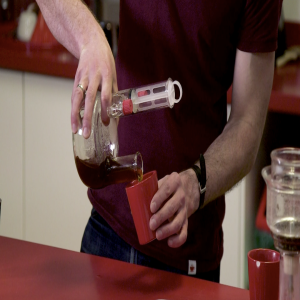
Saturday May 01, 2021
Episode 651: Bolivia Teodocio Mamani
Saturday May 01, 2021
Saturday May 01, 2021
We first encountered Teodocio Mamani back in 2012. Long story short: he's an amazing guy doing great things with coffee!
Teodocio's farm sits in the municipality of Canton Uyunense in Caranavi, and this coffee is a mixed lot of red and yellow Catuai. Teodocio has one hectare of land on his farm that is a natural forest reserve, in which he owns a house where he lives with his wife and two children.
Teodocio processes the majority of his coffee on his own farm. He uses a depulper that removes the cherry, then leaves the cherry to go through a dry fermentation process (anaerobic) for sixteen hours, and then runs it through the scrubber section of the pulper to remove the final remains of the mucilage. He then transfers the coffee to raised African beds, where it dries in around twelve days (depending on local weather conditions).
We were talking to the exporter about Teodocio's picking methods, and he was explaining that the family uses a method called 'Ayne'. With this method the most mature fruits are harvested each day by hand, demanding the labour of 8–10 people (who are all Mamani family members) to pick selectively and correctly. But because of this he gets more coffee that he can sell as specialty grade, and the cup profile improves too. Teodocio is super passionate about improving the cup quality!
Starting with brown sugar, this swings quickly into honeycomb. It's definitely sweet, but a gentle hint of mango alongside it and then a bit of lime zest on the finish adds a softly fruity edge. The aftertaste keeps that going with juicy raisin, tempting you back for another sip.
- Country: Bolivia
- Region: Yungas
- Province: Caranavi
- Municipality: Canton Uyunense
- Farm: Teodocio Mamani
- Varietals: Caturra and Catuai
- Ripe cherry colour: Red and yellow
- Altitude: 1,600–1,750 m.a.s.l.
- Processing method: Mechanically washed
- Fermentation method: Dry (anaerobic)
- Fermentation time: 16 hours
- Drying method: Raised African beds
- Drying time: 12 days
CUPPING NOTES
Brown sugar, honeycomb, mango, lime zest, raisin.
Clean cup: (1–8): 6
Sweetness: (1–8): 7
Acidity: (1–8): 6
Mouthfeel: (1–8): 6
Flavour: (1–8): 6.5
Aftertaste: (1–8): 6.5
Balance: (1–8): 7
Overall: (1–8): 6.5
Correction:(+36): +36
Total (max. 100): 87.5
Roast Information
Medium-dark - reduce the heat during first crack and let them run through to the end of the gap. Drop just before second crack begins.

Saturday Apr 24, 2021
Episode 650: Bolivia El Fuerte Anaerobic Washed Bourbon
Saturday Apr 24, 2021
Saturday Apr 24, 2021
El Fuerte was named in honour of the 'Fort of Samaipata', which is a unique ruin in Bolivia. El Fuerte de Samaipata (Fort Samaipata), also known simply as 'El Fuerte', is a pre-Columbian archaeological site. It's unique in that it represents the legacies of Inca, Spanish, and Chanè cultures, and it's one of Samaipata's main attractions. Situated in the eastern foothills of the Bolivian Andes, in the Santa Cruz department of Florida province, the archaeological site is also a UNESCO World Heritage site.
El Fuerte de Samaipata is not a military fortification. It is generally considered to be a pre-Columbian religious site built by the Chané people, who were a pre-Inca culture of Arawak origin. There are also ruins of an Inca city built near the temple; the city was built during the Inca expansion to the southeast. Both Incas and Chanés suffered several raids from Guarani warriors, who invaded the region from time to time. Eventually, the Guarani warriors conquered the plains and valleys of Santa Cruz and destroyed Samaipata. The Guaranis dominated the region well into the Spanish colonial period.
The Spaniards also built a settlement near the temple, and there are remains of buildings of typical Andalusi Arabic architecture. The Spaniards abandoned the settlement and moved to the nearby valley, where the town of Samaipata is currently located. The archaeological site at El Fuerte is unique, and it encompasses buildings of three different cultures: Chanés, Incas, and Spaniards.
El Fuerte was a first experiment in developing coffee in a region with excellent characteristics for producing amazing quality coffee (good soil conditions and high altitude), but with traditionally little coffee production and no specialty coffee. After consulting with a specialised agronomist, the region of Agua Rica at the edge of the Amboró National Park – some 20 KM east of Samaipata was chosen as the ideal location.
Initially, several different varietals were tried, including Red Bourbon and Yellow and Red Caturra (although nowadays Agricafe, which runs the farm, has ventured into growing other varietals). Caturra and Typica are both traditionally grown in Bolivia and are commonly seen, but alongside other, slightly rarer varietals like Java and Geisha. Although there is little need for trees for shade because the altitude keeps the temperature down, trees were planted to protect the coffee trees from the strong winds that are common in the region.
Deciding to go ahead and plant coffee at El Fuerte was something of a risk, but it's one that has undoubtedly paid off. The location has proved to be strategic and the weather is ideal; so much so that a second wet mill has been established at the site, meaning all coffee produced in the Samaipata farms can be processed at El Fuerte.
The team at Agricafe have been carefully experimenting at their wet mill with new ways of processing their coffee. This brought us their wonderful Naturals, but now they've turned their attention to their washed coffees! In particular, they've focused on the stage before the freshly picked coffee cherries are depulped, adding an Anaerobic resting phase.
This basically means putting the coffee cherries into large, sealed barrels along with water. This can create very unique and distinctive flavours, but using the same attention to detail and careful control of the processes that we see in their Naturals, the Agricafe team monitor and manage the process to get the best out of it. They do this by keeping the temperature low, which keeps the flavours crisp and clean, and by carefully judging the right moment to move the process on and remove the pulp.
Juicy pear fills the mouth with the first sip, with a milk chocolate sweetness following on its heels. As it cools, there's a malty but fruity sweetness, rather like malt loaf, before it finishes with a glacé cherry (on top).
- Country: Bolivia
- Province: Florida
- Department: Santa Cruz
- Farm: El Fuerte
- Altitude: 1,550–1,700 ;m.a.s.l.
- Variety: Bourbon
- Process: Anaerobic Washed
- Drying: Stationary Dryer (72 hours, 40º temp.)
CUPPING NOTES
Pear, milk chocolate, malt loaf, glacé cherry.
Clean cup (1–8): 6.5
Sweetness (1–8): 6.5
Acidity (1–8): 6
Mouthfeel (1–8): 6
Flavour (1–8): 7
Aftertaste (1–8): 6
Balance (1–8): 7
Overall (1–8): 7
Correction (+36): +36
Total: (max. 100): 88
Roast Information
Medium-dark - reduce the heat during first crack and let them run through to the end of the gap. Drop just before second crack begins.

Saturday Apr 17, 2021
Episode 649: Burundi Kirundo Washed Bourbon
Saturday Apr 17, 2021
Saturday Apr 17, 2021
In the Kirundo Province of North East Burundi, sits the Kirundo Mill and the Cafex washing station. CAFEX was launched by a Belgian-Burundian couple who wanted to combine the local tradition of coffee production with positively and sustainably developing the local area and have worked hard to develop a mutually beneficial business model for local coffee growers.
Running a washing station is a huge challenge. Farmers work throughout the day to handpick their coffee cherries and at sunset, the coffee arrives at the CAFEX washing station. The processing takes place at night, while the reception of the cherries takes place from sunrise until the early hours of the night, allowing farmers to focus on providing the highest quality coffee.
The CAFEX station has had a really positive impact on families in the region. The town where the washing station is located has been historically underdeveloped and the implementation of the Cafex station provides valuable work for the men and women of the town and helps to improve their quality of life. Families who have a seasonal job have the opportunity to receive an extra income which gives them access to medical care or allows them to buy books in order to send their children to school. On top of this, Cafex has introduced a weekly payment programme for growers, while many coffee producers have to wait many months to receive payment for their harvest, this weekly payment gives them a regular income throughout the coffee harvesting season.
Ripe cherries are selected from daily pickings, and sun-dried on raised African beds, being turned every 2 hours to give even fermentation, and covered during the midday heat to prevent sun damage. Once optimum moisture levels have been reached, the coffee is transported for milling at Ikawa Nziza’s drymill in Gashoho commune between the towns of Ngozi & Muyinga. The mill is designed to cater to small, traceable microlots. Its location in a high altitude (1,730 m.a.s.l.) and low humidity environment provides the optimal environment to preserve the quality of the coffee and therefore demand higher prices for farmers.
A very sweet and rounded coffee, there's sweet lime curd and brown sugar up front before it finishes with creamy milk chocolate that lingers into the aftertaste.
- Country: Burundi
- Region: North East Burundi
- Location: Kirundo county
- Mill: CAFEX Kirundo
- Drymill: Gashoho
- Producers: 365
- Altitude: 1,450-1,600 m.a.s.l.
- Processing method: Washed
- Varietal: Bourbon
- Soil type: Red non-hydromorphic spodosols, iron-rich
- Rainfall: 848mm average per year
CUPPING NOTES
Brown sugar, lime curd, milk chocolate.
Clean cup: (1–8): 6.5
Sweetness: (1–8): 7
Acidity: (1–8): 6.5
Mouthfeel: (1–8): 6
Flavour: (1–8): 6.5
Aftertaste: (1–8): 6
Balance: (1–8): 6.5
Overall: (1–8): 6
Correction: (+36): +36
Total: (max. 100): 87
Roasting Information:
Medium-dark - through first crack and push it to the cusp of second. Lighter roasts will highlight the sugary sweetness, but push it through to highlight the citrus and milk chocolate elements.
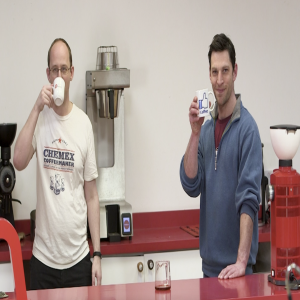
Saturday Apr 10, 2021
Episode 648: Bolivia Don Carlos
Saturday Apr 10, 2021
Saturday Apr 10, 2021
Due to complications within the Bolivian coffee industry, many of the smaller Bolivian farms we have worked with in the past are sadly no longer producing coffee. Whilst this has created some challenges for us, it has had a much more significant impact on our exporting partners Agricafe, who have been working with these growers for many years.
As a result, Agricafe have decided to begin farming for themselves, in an effort to demonstrate what can be achieved with the application of more modern techniques and a scientific farming approach.
Agricafe now manage seven farms, and these are collectively known as the Buena Vista project. Finca Don Carlos is the project's second farm, and it was planted in Caranavi in 2014.
The farm is named in honour of Carlos Mariaca, the oldest and most unconditionally awesome employee of Agricafe. He was there at the start of the specialty coffee trend and, together with Pedro, helped to build the wet mill in Caranavi. To show their gratitude for all his good work, the company decided to give him partnership of the farm.
This farm, along with the other Buena Vista project farms, is run by Pedro Pablo Rodriguez, son of Agricafe owner Pedro Rodriguez. Agricafe first bought their farms in 2012, when it became clear they were facing rapidly decreasing coffee production across the country. They have twelve farms in total, and this is one of eight in the Caranavi region (the traditional coffee producing area of Bolivia). Pedro Pablo studied agronomy in Honduras and brought techniques he had learnt there to the Buena Vista farms.
In 2016, farms surrounding Don Carlos suffered badly with leaf rust (also called Roya). This caused a substantial drop in production, but the farmers developed a strong program to combat the disease, and they can now use that on other farms when they're affected.
This is a washed Caturra lot containing both red and yellow fruit. The cherries are left for fifteen hours to allow the fruit to begin to break down before it goes through the mechanical washing process.
This is luxury chocolate mousse through and through! Cream and cocoa deliver that rich, deep flavour which lingers on right through into the finish, all held together by the silky smooth body. There’s a tiny nod to green apple in there too, which helps the chocolate sing all the louder.
- Country: Bolivia
- Region: Bolinda – Caranavi
- Producer: Agricafe
- Farm: Don Carlos
- Producer: Carlos Mariaca
- Elevation: 1,550 – 1,650 m.a.s.l.
- Varietal: Red and Yellow Caturra
- Shade plants : Native species
- Processing method: Washed
CUPPING NOTES
Chocolate mousse, cream, green apple.
Clean cup: (1–8): 6
Sweetness: (1–8): 8
Acidity: (1–8): 6
Mouthfeel: (1–8): 6.5
Flavour: (1–8): 7
Aftertaste: (1–8): 6
Balance: (1–8): 6
Overall: (1–8): 6.5
Correction (+36): +36
Total (max. 100): 88
Roast Information
Medium-dark – through first and push this up to the first pops of second, no more. There's lots of creamy sweetness here, so it doesn't need to be slowed down too much during the gap, keep a steady pace up.
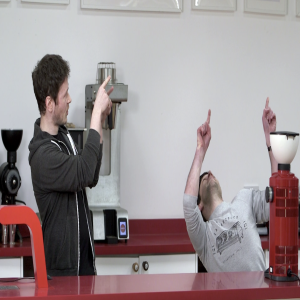
Saturday Apr 03, 2021
Episode 647: Brazil Fazenda Inglaterra Pulped Natural Mixed Selection
Saturday Apr 03, 2021
Saturday Apr 03, 2021
Fazenda Inglaterra is a farm we've been buying from for over ten years, and it's one that we are very proud to be working with and linked with. The owner is our very good friend, Stephen Hurst.
To tell the story of Inglaterra, we'll hand this over to Stephen to tell you how he came to own 'Inglaterra':
“Maybe it had always been an idea in the back of my mind – so a couple of years ago when some friends in Brazil mentioned that a small coffee farm was for sale, I had a look.
The farm's name (Fazenda Toca Da Onca) means 'hiding place of a small wildcat'. The locals now call the farm 'Inglaterra'. The previous owners had abandoned Toca Da Onca/Inglaterra. So we had to start again, almost from scratch. Some surviving coffee trees were pruned right back and the coffee that you are now drinking is that re-growth from the original old trees.
The farm is located near the lovely spa town of Poços de Caldas in the coffee-growing heartlands of Brazil’s Minas Gerais state. The farm's elevation is 950–1,300 metres, and it has rich soil. It's on the edge of an ancient caldera/super volcano, whose outline can be seen on satellite images. 50% of the farm is virgin Mata Atlantica forest and as long as I own it, it will stay that way. I am replanting some areas with the help of my local friends Gabriel and Cristiano, without whose assistance this project would never have started."
This is the only Pulped Natural lot we have from Inglaterra this year, whereas in the past, we've enjoyed single lots of Acaia, Bourbon and Canario. Inglaterra isn't a big farm by any standards and is tiny by the overall standards of Brazil. What that means for their processing is that they don't get to pick and choose much. We buy the entire coffee production of the farm, and the weather (and amount of free space they have) decides for them which lots will be Naturally processed and which will be Pulped Natural.
Nuts! It's a moreish medley of hazelnut, pecan and Brazil nuts, but with a dark caramel sweetness which makes it all rather like a nut brittle.
- Country: Brazil
- Region: Minas Gerias
- City: Poços de Caldas
- Farm: Fazenda Inglaterra
- Farmer: Stephen Hurst
- Farm size: 10 hectares
- Coffee growing area: 5 hectares
- Altitude: 1,200 m.a.s.l.
- Varietals: Catuai, Icatu and Acaia
- Processing system: Pulped Natural
CUPPING NOTES
Hazelnut, Brazil nut, pecan, dark caramel
Clean cup: (1–8): 6
Sweetness: (1–8): 7
Acidity: (1–8): 6
Mouthfeel: (1–8): 6
Flavour: (1–8): 6.5
Aftertaste: (1–8): 6
Balance: (1–8): 6.5
Overall: (1–8): 6
Correction:(+36): +36
Total (max. 100): 86
Roasting Information
Medium to medium-dark - through first and give it some time in the gap, but no more than the very first pops of second crack on the drop. Beware that there's not so much noise from this coffee, so spotting cracks will be tricky.

Saturday Mar 27, 2021
Episode 646: Burundi Kirundo Natural Bourbon
Saturday Mar 27, 2021
Saturday Mar 27, 2021
In the Kirundo Province of North East Burundi, sits the Kirundo Mill and the Cafex washing station. CAFEX was launched by a Belgian-Burundian couple who wanted to combine the local tradition of coffee production with positively and sustainably developing the local area and have worked hard to develop a mutually beneficial business model for local coffee growers.
Running a washing station is a huge challenge. Farmers work throughout the day to handpick their coffee cherries and at sunset, the coffee arrives at the CAFEX washing station. The processing takes place at night, while the reception of the cherries takes place from sunrise until the early hours of the night, allowing farmers to focus on providing the highest quality coffee.
The CAFEX station has had a really positive impact on families in the region. The town where the washing station is located has been historically underdeveloped and the implementation of the Cafex station provides valuable work for the men and women of the town and helps to improve their quality of life. Families who have a seasonal job have the opportunity to receive an extra income which gives them access to medical care or allows them to buy books in order to send their children to school. On top of this, Cafex has introduced a weekly payment programme for growers, while many coffee producers have to wait many months to receive payment for their harvest, this weekly payment gives them a regular income throughout the coffee harvesting season.
Ripe cherries are selected from daily pickings, and sun-dried on raised African beds, being turned every 2 hours to give even fermentation, and covered during the midday heat to prevent sun damage. Once optimum moisture levels have been reached, the coffee is transported for milling at Ikawa Nziza’s drymill in Gashoho commune between the towns of Ngozi & Muyinga. The mill is designed to cater to small, traceable microlots. Its location in a high altitude (1,730 m.a.s.l.) and low humidity environment provides the optimal environment to preserve the quality of the coffee and therefore demand higher prices for farmers.
Sticky, sweet pear juice fills the cup here, but there are layers of other fruit behind that too, with golden raisins, plum and candied lemon peel all slipping past.
- Country: Burundi
- Region: North East Burundi
- Location: Kirundo county
- Mill: CAFEX Kirundo
- Drymill: Gashoho
- Producers: 365
- Altitude: 1,450-1,600 m.a.s.l.
- Processing method: Natural
- Varietal: Bourbon
- Soil type: Red non-hydromorphic spodosols, iron-rich
- Rainfall: 848mm average per year
CUPPING NOTES
Pear juice, golden raisin, plum, candied lemon peel
Clean cup: (1–8): 7
Sweetness: (1–8): 6.5
Acidity: (1–8): 6
Mouthfeel: (1–8): 6.5
Flavour: (1–8): 6.5
Aftertaste: (1–8): 6
Balance: (1–8): 6.5
Overall: (1–8): 7
Correction: (+36): +36
Total: (max. 100): 88
Roasting Information:
Medium-dark - nice and steady and middle of the road - push the roast through the gap and finish with no more than the first pops of second as it cools.
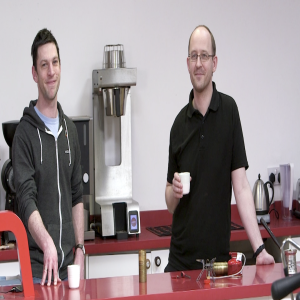
Saturday Mar 20, 2021
Episode 645: El Salvador Finca La Ilusion Natural Bourbon
Saturday Mar 20, 2021
Saturday Mar 20, 2021
One of our all-time favourite farms returns once more! We often get asked what our favourite coffee of all time is, but we will never say exactly (although our friends know the true answer). However, we do narrow it to three coffees, and this is one of them.
We went to El Salvador on a buying trip in 2008, and were visiting some of the farms that we buy from. We actually arrived the evening of the Cup of Excellence awards, and after the ceremony we were walking around when this guy who seemed very popular came over and introduced himself. He was Ernesto or, as we would come to know him, Neto. He'd just won the Cup of Excellence competition with his 'La Ilusión' farm, the sister farm of 'Alaska'. Alaska is a farm we had bought from via the Cup of Excellence the year before. Ernesto invited us to visit La Ilusión the next day, and it was so great to finally meet someone we had communicated with so many times via email!
Neto bought La Ilusión many years ago. The farm has coffee trees averaging 20+ years of age and is growing 95% Bourbon (70% is Red Bourbon and 25% is Orange Bourbon). The remaining 5% is a combination of other varietals, and it's possible to spot some Typica and Kenya trees too.
The farm is run using environmentally friendly practices because the farmers are trying to maintain a balance with the surrounding ecosystem, which is part of a natural fauna corridor crucial to migratory and native birds. This is very important for Ernesto because La Ilusión neighbours one of the most important national parks in El Salvador, known as 'Los Andes'. It is nestled on the Santa Ana volcano and delineates his farm with dense pine and cypress forest, which itself provides a special micro-climate for La Ilusión.
The 2011 version of this naturally processed lot was used by the 2011 World Barista champion, Alejandro Mendez. He caused a bit of a stir in the World of Barista Championships by using a naturally processed lot in his milk drinks and his signature drink, and then using the washed version as his espresso. He caused such a stir that he won! That year we had roasted the coffee for Alejandro, and it had been grown by Neto. There was a magical moment backstage in which we were stood, polishing glass, with Alejandro and Neto; the grower, roaster and barista all stood together, preparing for the presentation. It's not too often you get such wonderful things happening! Aah, the wonders of barista competition. :)
The intense sweetness of strawberry jam runs throughout the coffee. There's a bit of peach too, adding a little complexity, and a shoulder of orange on the finish.
- Country: El Salvador
- Region: Apaneca-Ilamatepec mountain range
- City: Santa Ana
- Farm: La Ilusión
- Farmer: Juan Jose Ernesto Menéndez Argüello
- Altitude: 1,750–1,850 m.a.s.l.
- Variety: Bourbon
- Processing system: Natural
CUPPING NOTES
Strawberry jam, peach, orange
Clean cup: (1–8): 6
Sweetness: (1–8): 7
Acidity: (1–8): 6
Mouthfeel: (1–8): 6.5
Flavour: (1–8): 6.5
Aftertaste: (1–8): 6
Balance: (1–8): 6.5
Overall: (1–8): 6.5
Correction:(+36): +36
Total: (max. 100): 87
Roasting Information
Medium to medium-dark - through first and slow it a little, pushing it towards the second but finishing the roast before second gets going.
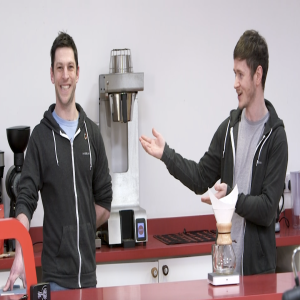
Saturday Mar 13, 2021
Episode 644: Brazil Fazenda Cachoeira da Grama Natural Canario
Saturday Mar 13, 2021
Saturday Mar 13, 2021
This farm and its coffee sparked a massive change in what I thought we knew about coffee. We remember the first time we ever cupped this coffee: time stood still as the cup opened our minds to what great coffee is and can be. Gabriel de Carvalho Dias, the farmer, continues to produce great coffee year on year, and this coffee still holds a very special place in our hearts.
Gabriel is one of Brazil’s leading agronomists. His family owns several farms, all of which border one another. Fazenda Cachoeira da Grama is 417 hectares in size – that’s 4 square kilometres! That sounds huge, but it’s not uncommon for farms to be more than 1,000 hectares.
Because of the mountainous terrain, however, only 64 hectares are planted with coffee, and it's all picked and maintained by hand. The mill is located close to the spa town of Poços de Caldas, which is 45 minutes away from the farm.
Fazenda Cachoeira da Grama has been in the Carvalho Dias family since 1890. It's located in São Paolo state, just three miles from the border with Minas Gerais state. It enjoys the typical characteristics of the mountainous Mogiana and Sul de Minas regions, and it's located at an altitude of 1,100–1,250 metres above sea level.
Their farm has a school, a club and a full-sized soccer field for the employees and workers, and 47 houses – all with modern facilities. The wastewater is treated in order to avoid polluting the stream that runs across the farm. The farm has a small hydroelectric plant, and the farmers only buy energy during the peak harvest.
As well as providing support to the workers, the family have also invested in the farm's coffee processing facilities. This has allowed them to produce one of the most consistent and delicious coffees. They grow mostly Yellow Bourbon, but also Canario and Mundo Novo. It's well-established plant stock, and some of the original Bourbon varietal trees are as much as 108 years old.
They’ve also invested in trying new things, including planting some new varietals and trialling new fermentation experiments with the involvement of experts from the University of Lavras (UFLA) in Minas Gerais.
The Carvalho Dias family consider social and environmental sustainability to be very important. The farm has a programme of planting native species of trees to maintain a better ecological balance.
This comes from the rare Canario varietal, which is a Bourbon mutation that originated in Brazil. You can find out more about it here, but what you will notice in the cup is that it adds complexity and a little acidity when compared to the Bourbon varietal.
Fit for the ambassador's dinner, there's the classic Brazil hazelnut and chocolate flavours, but extra refined. There's a sweetness and silky texture of single cream alongside chocolate spread, whilst the sprinkle of hazelnuts gets a twist with roasted chestnut in there too.
- Country: Brazil
- State: São Paulo
- Municipality: São Sebastião da Grama
- Farm: Fazenda Cachoeira da Grama
- Producers: Lidolpho de Carvalho Dias and family
- Processing: Natural
- Varietal: Canario
- Altitude: 1,100–1,250 m.a.s.l.
CUPPING NOTES
Hazelnut chocolate spread, single cream, roasted chestnut
Clean cup: (1–8): 6
Sweetness: (1–8): 7
Acidity: (1–8): 6
Mouthfeel: (1–8): 7
Flavour: (1–8): 6.5
Aftertaste: (1–8): 6.5
Balance: (1–8): 6
Overall: (1–8): 6.5
Correction (+36): +36
Total (max. 100): 87.5
Roast Information
Medium to medium-dark - through first and give it some time in the gap, but no more than the very first pops of second crack on the drop. Beware that there's not so much noise from this coffee, so spotting cracks will be tricky.

Saturday Mar 06, 2021
Episode 643: Brazil Fazenda Inglaterra Natural Canario
Saturday Mar 06, 2021
Saturday Mar 06, 2021
Fazenda Inglaterra is a farm we've been buying from for over ten years, and it's one that we are very proud to be working with and linked with. The owner is a very good friend of Hasbean, Stephen Hurst.
To tell the story of Inglaterra, we asked Stephen to explain how he came to own 'Inglaterra':
“Maybe it had always been an idea in the back of my mind – so a couple of years ago when some friends in Brazil mentioned that a small coffee farm was for sale, I had a look.
The farm's name (Fazenda Toca Da Onca) means 'hiding place of a small wildcat'. The locals now call the farm 'Inglaterra'. The previous owners had abandoned Toca Da Onca/Inglaterra. So we had to start again, almost from scratch. Some surviving coffee trees were pruned right back and the coffee that you are now drinking is that re-growth from the original old trees.
For the coffee people, the varietals are Icatu, Acaia and Catucai. In future I expect coffee cherry varietals to become as well known as wine grape varietals, and to a much wider audience. The farm is located near the lovely spa town of Poços De Caldas in the coffee-growing heartlands of Brazil’s Minas Gerais state. The farm's elevation is 950–1,300 metres, and it has rich soil. It's on the edge of an ancient caldera/super volcano, whose outline can be seen on satellite images. 50% of the farm is virgin Mata Atlantica forest and as long as I own it, it will stay that way. I am replanting some areas with the help of my local friends Gabriel and Cristiano, without whose assistance this project would never have started."
Sweet as you like, this kicks off with a big hit of Brazil nuts and brown sugar. Those flavours carry all the way through, with a full texture in the mouth, before swinging in to walnut on the aftertaste.
- Country: Brazil
- Region: Minas Gerais
- City: Poços de Caldas
- Farm: Fazenda Inglaterra
- Owner: Stephen Hurst
- Farm size: 10 hectares
- Coffee growing area: 5 hectares
- Altitude: 1,200 m.a.s.l.
- Varietal: Canario
- Processing system: Natural
CUPPING NOTES
Brazil nut, brown sugar, walnut.
Clean Cup: (1-8): 6
Sweetness: (1-8): 7
Acidity: (1-8): 6
Mouthfeel: (1-8): 6.5
Flavour: (1-8): 6.5
Aftertaste: (1-8): 6.5
Balance: (1-8): 6.5
Overall: (1-8): 6
Correction:(+36): +36
Total (max 100): 87
Roast Information
Medium to medium-dark - don't expect a lot of noise from these Brazilian coffees, but they need to be pushed steadily through the gap and towards second, but we don't want to hear second get going.

Saturday Feb 27, 2021
Episode 642: El Salvador Finca Los Andes Washed Bourbon
Saturday Feb 27, 2021
Saturday Feb 27, 2021
Juan Jose Ernesto 'Neto' Menéndez Argüello belongs to the fourth generation of coffee farmers in his family. After completing his studies at university, Neto had the opportunity to start working in the coffee industry at J. Hill & Cia in 2000. He left J. Hill & Cia after five years and began his second coffee experience at Jasal Café El Salvador.
Both companies gave him the opportunity to meet 'Grano de Oro' from another perspective, allowing him to learn the art and passion of cupping. He says those are very important in his life, and that they give him the opportunity to apply the coffee knowledge and experience he's gained through the years.
During his time in the coffee world, he has participated in various events like the Cup of Excellence (National Jury from 2003 to 2011), Q Auction, Q Grader, and the Star Cupper program organised by SCAA and CQI.
When Neto bought the Los Andes farm, he discovered that the previous owner of the farm had planted SL28 trees on the land which they had brought home with them after a hunting trip in Kenya around 60 years ago! In amongst the SL28 plants grows Bourbon too, and some of those trees are even older still, at around 80 years.
Similar to the Wild Forest Project area of Las Brumas (another of Neto's farms that we've nabbed coffee from in the past) at Los Andes everything is left to grow "wild". Instead of clearing the land to give him a blank canvas for a new coffee growing area, he's working with the forest which not only means super special and tasty coffee but also helps to protect the local flora and fauna.
There's a lovely toffee sweetness to this coffee, with delicate mixed fruit notes coming through as it cools. That starts as a delicate mandarin, then moves into dried apricot pieces before finishing with a little shoulder of grapefruit.
- Country: El Salvador
- Department: Sonsonate
- Nearest City: Santa Ana
- Farm: Los Andes
- Producer: Ernesto Menéndez
- Altitude: 1,720 m.a.s.l.
- Variety Bourbon
- Processing System: Washed
CUPPING NOTES
Toffee, mandarin, dried apricot, grapefruit
Clean Cup: (1-8): 6.5
Sweetness: (1-8): 6.5
Acidity: (1-8): 6.5
Mouthfeel: (1-8): 6
Flavour: (1-8): 6.5
Aftertaste: (1-8): 6
Balance: (1-8): 6.5
Overall: (1-8): 6.5
Correction:(+36): +36
Total: (max 100): 87
Roasting Information
Medium to medium-dark - through first and give it time to develop that toffee sweetness, but keep it a little lighter than most Salvadorian coffees and only just up to the edge of 2nd before it's dropped, so it keeps that delicate fruit.

Saturday Feb 20, 2021
Episode 641: Rwanda Musasa Mbilima Washed Bourbon
Saturday Feb 20, 2021
Saturday Feb 20, 2021
Located in the Gakenke region of Rwanda and founded in 2005, the Mbilima Washing Station is part of the well known Dekundekawa Musasa Cooperative and is the second washing station to be built by them, to support farmers who were further away from the Cooperative’s first Washing Station at Ruli.
Much of the success of Musasa Dukunde Kawa can be attributed to the transformational PEARL programme of which it was a part. The project switched the focus in the Rwandan coffee sector from an historic emphasis on quantity to one of quality, thus opening Rwanda up to the much more highly-valued specialty coffee market. The programme and its successor, SPREAD, have been invaluable in helping Rwanda’s small-scale coffee farmers rebuild their production in the wake of the devastating 1994 genocide and the 1990s world coffee crash.
‘Musasa’ means ‘a place to make a bed’, and ‘Dukunde Kawa’ means ‘let’s love coffee’ in Kinyarwanda; it is a reference to the power of coffee to improve the lives of those in rural communities. And that it certainly does! Farmers who work with Musasa Dukunde Kawa have been able to buy their own livestock, have access to long term credit without interest and many now have health insurance for the first time. The Cooperative has also built two schools and contributes 10% of its profits to the construction of new washing stations in other areas.
Roughly 459 smallholders deliver coffee cherries to the Mbilima Washing Station, with about 80% of them being women and the Washing Station itself is mostly staffed by women. The level of care that Musasa Dukunde Kawa takes over the processing is impressive too. Cherries are hand-picked only when fully ripe and then delivered to the washing station on the day of harvest, they are then hand-sorted based on quality. The cherries are then pulped and dry-fermented before being washed with high-pressure water and then graded once again using flotation channels that sort the coffee by weight (the heaviest – or A1 – usually being the best).
Next, the beans are moved onto the washing station’s extensive drying tables for around 14 days (depending on the weather), where they are sorted again for defects, turned regularly, and protected from rain and the midday sun by covers until they reach around 11% humidity. This ensures both even drying and the removal of any damaged or ‘funny looking’ beans. They then move to final dry-milling and hand-sorting at the cooperative’s dry mill in Kigali.
Lots are usually separated out by days. Upon delivery as cherry, the coffee receives a paper ‘ticket’ that follows the lot through all its processing. This ticket bears the date of harvest and the grade (A1, A2, etc.) of the coffee. For instance, if a coffee lot is called ‘Lot 1-06/04 -A1’, this means it was the first lot processed on 4th April and the grade is A1. This simple but effective practice is a crucial tool in controlling quality and ensuring the traceability of lots.
With a lovely balance of sweet and bright, this coffee brings juicy clementines backed up by silky butterscotch and milk chocolate. Finishing with sweet lemon, that citrus hit keeps going with a lingering lime.
- Country: Rwanda
- District: Gakenke
- Washing station: Musasa Mbilima
- Owner: Musasa Dukunde Kawa Cooperative (459 smallholder farmers)
- Varietal: Bourbon
- Processing method: Fully washed
- Drying method: sun-dried on raised beds
- Grade: A1
- Altitude of farms: 1,800 to 2,100 m.a.s.l.
CUPPING NOTES
Clementine, butterscotch, milk chocolate, lemon, lime.
Clean cup: (1–8): 6
Sweetness: (1–8): 6.5
Acidity: (1–8): 7
Mouthfeel: (1–8): 6.5
Flavour: (1–8): 7
Aftertaste: (1–8): 6
Balance: (1–8): 6.5
Overall: (1–8): 6.5
Correction: (+36): +36
Total: (max. 100): 88
Roasting Information
Medium-dark - keep it fairly quick, through first crack and push towards second but drop it before 2nd gets going.

Saturday Feb 13, 2021
Episode 640: El Salvador Finca Nejapa Roma Washed Red Caturra
Saturday Feb 13, 2021
Saturday Feb 13, 2021
Gloria Mercedes Rodríguez Fontan is a name you will probably recognise from a coffee we've had every year for many years, the always awesome Finca San José, check out this year's crop here. She's a fourth-generation coffee grower and owns + personally supervises six small farms located in the Apaneca-Ilamatepec mountain range: San José, Mamatita, El Porvenir, Nejapa, Nueva Granada and La Lagunita. This coffee comes from the specific Roma tablón of Nejapa, we last had coffee this farm way back in 2015 and are really excited to see it back in 2021.
Finca Nejapa was inherited by Gloria’s father, José María Rodríguez Herrera, in the 50s. At that time the property was only devoted to cattle for milking purposes, and it was José Maria who started growing coffee of the Bourbon variety. Little by little, he noticed coffee was extremely productive in that area.
The farm has 18.2 hectares of land in total, of which 6.3 hectares are dedicated to growing coffee. The coffee-growing area is divided into three separate plots or 'tablóns'; Los Vientos (2.1 hectares), Santa Marta (1.4 hectares), and Roma (2.8 hectares). The latter is where this coffee comes from.
Nejapa has also 7 hectares of land that was reforested with cedar trees and a diverse range of shade trees, which helps maintain and preserve both the soil conditions and a wide variety of birds and small mammals that can be seen in the region.
This farm is on the slopes of the Laguna de Las Ninfas (which translates as “water lilies lagoon”). It has a spectacular sight over the Apaneca-Ilamatepec mountain range, including the impressive Itzalco volcano, and even over the Pacific Ocean and the port of Acajutla.
Tablón Roma is located on the western side of Finca Nejapa. It has belonged to the family over four generations but was left unplanted until relatively recently. That's when Gloria obtained a loan through a local investment bank to redevelop and re-plant this area. The variety chosen for this plot was Caturra; in those days it was in vogue to plant this short-size producing tree with good yields, and it was needed to repay the loan. Happily, variety and terroir combined to result in great quality coffee.
The name ROMA was chosen by combining the first two letters of the names of her children, Roberto and María Jose. This farm was awarded in the El Salvador Cup of Excellence in 2008 and 2009.
Each year Gloria employs around 35 people during the harvesting season, and all year round she manages a permanent "winter works" team of 15 people. The idea is to have a solid trained and skilled working group that receive better wages and working conditions. Gloria pays during harvest around 90% above the legal minimum wage to give workers incentive and assure the best coffee cherries possible. After every production cycle, she gives a proportional bonus according to every week of labour of her “winter workers” that normally derives into 1.2 months extra of income for them.
Gloria works under strict specialty coffee standards. These include fully ripe cherries harvest, careful milling, appreciative pruning, etc. She is blessed with amazing coffee terroir conditions such as altitude and sandy loam soils rich in organic matter, among others. Coffee pickers are selected from her staff based on their experience and passion, and their understanding of the requirements to obtain high-quality coffee. She supervises the whole process directly with the support of Antonio Avelino, her farm foreman.
Super moreish, this reminds me of a pear coated in milk chocolate. There's just a little lime zest on the finish too, but that delicate pear acidity and sweet milk chocolate is the star here.
- Country: El Salvador
- Region: Ahuachapán
- Nearest City: Ataco
- Farm: Finca Nejapa
- Tablón: Roma
- Producer: Gloria Rodriguez
- Farm size: 18.2 hectares
- Coffee growing area: 6.3 hectares
- Tablon size: 2.8 hectare
- Altitude: 1,470-1,570 m.a.s.l.
- Varietal: Red Caturra
- Processing system: Washed
CUPPING NOTES
Pear, milk chocolate, lime zest.
Clean Cup: (1-8): 6
Sweetness: (1-8): 7
Acidity: (1-8): 6.5
Mouthfeel: (1-8): 6
Flavour: (1-8): 7
Aftertaste: (1-8): 6
Balance: (1-8): 6.5
Overall: (1-8): 7
Correction: (+36): +36
Total: (max 100): 88
Roasting Information
Medium-dark - through first and keep a nice steady pace towards second, but drop it before 2nd kicks off so the delicate pear isn't masked.

Saturday Feb 06, 2021
Episode 639: Ethiopia Uraga Natural
Saturday Feb 06, 2021
Saturday Feb 06, 2021
Another Ethiopian delight from our very good friend Israel Degfa (who you may know from Ana Sora)! This is our fifth year of buying from him, and we're really excited to have a new coffee from him for 2021.
For those of you who may not be familiar with Israel, he's a second-generation coffee farmer who grew up immersed in various aspects of the coffee industry. His father was a mill manager and his mum sold coffee in the local bus station to commuters.
My last visit to Ethiopia was in December 2019 and I'm so pleased I was able to potter by and catch up with Israel before all this pandemic hoo-hah kicked off. Stevie Storytime 📕🙌 during my most recent trip we were driving together down a rough road that was part-way through being built when we blew out two tires at the same time. We had been travelling for 12 hours in the car and there wasn't a tyre shop anywhere nearby - so we got stuck in the middle of nowhere in the dark for three hours 😱 Thankfully one of the farm managers kindly drove out to us with a car which we took back to the house, and he slept in our car all night to keep an eye on it until the tyre shop opened. What a top bloke, he was our knight in shining armour!
Ethiopian coffee farms are high in general compared to other producing countries (mostly between 1,700 - 2,100 masl) but Uraga is on the higher side still, reaching as high as 2300 masl. The altitude helps with the slower maturation of the coffee cherry (owing in part to the generally lower temperatures and cooler nights) and allows more time for the plant to develop, which contributes to the super unique cup profile we see in coffees from Ethiopia.
Coffee growing is popular locally, and Israel also sources coffee from the surrounding area. Each washing station has around 1,000-2,000 members, each with one of the small home coffee plots typical of Ethiopia producing very small quantities. The area is populated by smallholder farmers who speak Oromife and are of Oromo ethnicity. Israel believes in helping these farmers through both education in husbandry, and financial assistance.
Uraga is located in the Guji zone, due East of Yirgacheffe, bordering Sidamo in the Oromia region of Ethiopia. Over a number of years, the region has developed a distinguished reputation for amazing coffees, producing some of the most sought-after micro-lots in world. The combination of high altitude (up to 2,300m in some areas), fertile soil, consistent & plentiful rains, and an abundance of local knowledge are all contributing factors to the high status of coffees from this area. The indigenous ‘heirloom’ varietals - which grow wild in Ethiopia - are heavily responsible for the unique flavour notes which make Ethiopian coffees a major customer favourite.
This starts with juicy and fresh yellow plums. That fruit is joined by a floral edge on the finish, like hibiscus. On the aftertaste that yellow fruit keeps going, but with the clean and delicate flavour of cloudberry lingering.
- Country: Ethiopia
- Zone: Guji
- Region: Oromia
- Mill: Uruga
- Mill Location: Uraga Solemo
- Owner: Israel Degfa
- Altitude: 2,300 m.a.s.l.
- Varietal: Indigenous wild varietals
- Processing method: Natural
CUPPING NOTES
Yellow plum, cloudberry, hibiscus
Clean cup: (1–8): 7
Sweetness: (1–8): 6.5
Acidity: (1–8): 6.5
Mouthfeel: (1–8): 6
Flavour: (1–8): 7
Aftertaste: (1–8): 6
Balance: (1–8): 6
Overall: (1–8): 7
Correction: (+36): +36
Total: (max. 100): 88
Roasting Information
Medium - this needs to go a little hotter than you might expect, but you're still looking for a medium roast, through first crack, steadily pushed through the gap and finishing the roast before second gets going.

Saturday Jan 30, 2021
Episode 638: Guatemala El Bosque Washed Bourbon
Saturday Jan 30, 2021
Saturday Jan 30, 2021
El Bosque sits on a hillside that runs parallel to the main road to Guatemala City. Due to its proximity to the capital, it faces threats from ever-expanding urban development. However, during the time we have been working with El Bosque, prices and returns for the farm have made it a much higher concern for the brothers, and they are very motivated.
Before I'd tried this coffee at El Bosque, it was love at first taste, I was absolutely blown away by how good it was! However, my first visit to the farm in January 2007 really cemented this, because I got to learn more about the awesome people behind the coffee.
Julian Flores founded the farm in 1932. The fourteen-hectare extension of land was planted out with Bourbon varietal coffee, which was cultivated and sold in cherry form only. Over the next few years, with the acquisition of more land, the farm continued to grow. Julian Flores passed away in 1947, and his son, José Eladio Flores, inherited the farm and continued his father’s legacy of growth. By 1970, José had bought another 23 hectares and continued to grow and sell the same Bourbon coffee varietal. After his death in 1996, a third-generation has taken the farm on under the direction of José’s widow, Martha Stalla, and their sons Julio, José, Francisco and Mario.
This third-generation, headed up by Don Roberto, has focused on innovation, and they have built a plant for processing the cherries in line with strict environmental guidelines. They have also branched into cultivating other plants for local consumption. These include plants such as avocados, roses and lemons, and they're also growing a new grass innovation.
A perfect quaffing coffee, there's a caramelised sweetness of Lotus speculoos biscuits, but with a drizzle of chocolate on top. There's also a roasted hazelnut edge before it finishes on the caramel, with just a little red apple creeping in.
- Country: Guatemala
- Department: Guatemala department
- Municipality: Villa Canales
- Town: Amatitlán
- Farm: El Bosque
- Farmer: Flores family
- Farm size: 37 hectares
- Coffee growing area: 14 hectares
- Altitude: 1,400–1,645 m.a.s.l.
- Variety: Bourbon
- Processing system: Washed
CUPPING NOTES
Lotus biscuit, chocolate, roasted hazelnut, caramel, red apple
Clean cup (1–8): 6
Sweetness (1–8): 6.5
Acidity (1–8): 6
Mouthfeel (1–8): 6.5
Flavour (1–8): 6.5
Aftertaste (1–8): 6
Balance (1–8): 6.5
Overall (1–8): 6.5
Correction (+36): +36
Total: (max. 100): 86.5
Roasting Information
Medium-dark - through first and let it slow down a little to develop the caramelised flavours, dropping just as you get to the start of second crack.

Saturday Jan 23, 2021
Episode 637: Brazil Fazenda Inglaterra Natural Bourbon
Saturday Jan 23, 2021
Saturday Jan 23, 2021
Fazenda Inglaterra is a farm we've been buying from for over ten years, and it's one that I am very proud to be working with and linked with. The owner is my very good friend, Stephen Hurst.
To tell the story of Inglaterra, I'll hand this over to Stephen of the Hurst variety to tell you how he came to own 'Inglaterra':
“Maybe it had always been an idea in the back of my mind – so a couple of years ago when some friends in Brazil mentioned that a small coffee farm was for sale, I had a look.
The farm's name (Fazenda Toca Da Onca) means 'hiding place of a small wildcat'. The locals now call the farm 'Inglaterra'. The previous owners had abandoned Toca Da Onca/Inglaterra. So we had to start again, almost from scratch. Some surviving coffee trees were pruned right back and the coffee that you are now drinking is that re-growth from the original old trees.
The farm is located near the lovely spa town of Poços de Caldas in the coffee-growing heartlands of Brazil’s Minas Gerais state. The farm's elevation is 950–1,300 metres, and it has rich soil. It's on the edge of an ancient caldera/super volcano, whose outline can be seen on satellite images. 50% of the farm is virgin Mata Atlantica forest and as long as I own it, it will stay that way. I am replanting some areas with the help of my local friends Gabriel and Cristiano, without whose assistance this project would never have started."
This is a naturally processed Bourbon lot. To find out more about what this means, please make sure to have a look at our natural processing video and also our article on the Bourbon varietal.
When this is really hot, it's all about dark chocolate but as soon as it begins to cool slightly walnut and hazelnut come to the fore. Then a little hit of caramel and a delicious almond finish. If you can resist finishing the mug and it cools down a little more again, a delicate rum and raisin will creep in too.
- Country: Brazil
- Region: Minas Gerais
- City: Poços de Caldas
- Farm: Fazenda Inglaterra
- Owner: Stephen Hurst
- Farm size: 10 hectares
- Coffee growing area: 5 hectares
- Altitude: 1,200 m.a.s.l.
- Varietal: Bourbon
- Processing method: Natural
CUPPING NOTES
Dark chocolate, walnut, almond, caramel
Clean cup: (1–8): 7
Sweetness: (1–8): 6.5
Acidity: (1–8): 6
Mouthfeel: (1–8): 6.5
Flavour: (1–8): 7
Aftertaste: (1–8): 6.5
Balance: (1–8): 6.5
Overall: (1–8): 6
Correction:(+36): +36
Total (max. 100): 88
Roast Information
Medium-dark – through first crack and keep a steady development up to the edge of second before you finish the roast.

Saturday Jan 16, 2021
Episode 636: Nicaragua Las Delicias Washed Longberry
Saturday Jan 16, 2021
Saturday Jan 16, 2021
This farm was brand new to us not all that many years ago, and we're really happy to have been able to continue getting coffee from Las Delicias every year since. Although the farm itself is still relatively new to us in the grand scheme of things, the people behind it most certainly aren't. In fact, we've been working with them for well over ten years now.
The Mierisch family (whom you may know from such farms as Cerro Azul, Limoncillo, Mama Mina, Escondida and Milligros) have worked with us over that time to bring us delicious coffee, and continue to do so year after year 😊
Much of that deliciousness is thanks to their amazing processing, and Eleane Mierisch is in charge of that. She works in the family business, but she's never owned her own farm. Never, that is, until she acquired Las Delicias all for herself a few years ago.
The farm is located in the region of Jinotega at an average altitude of 1,450 metres above sea level. It's located next to another Mierisch farm that you might have heard of, which is called San José. We've had coffee from there a few times; we're definitely hoping to see more in the future, too.
Eleane knows the area very well, and she knows the land and what it's capable of producing. Add to this her passion for coffee, and you can start to understand why she wanted to produce coffee on a farm of her own.
The Longberry varietal is the fruit of some of the amazing experimental work that's taking place at Limoncillo, another Mierisch farm (as if I even need to tell you that!) To explain a little bit of the story behind it, I'll hand over to another Mierisch that I just so happen to know. Oh hi there, Erwin!
Here my 'story' begins back in mid-2001. I sound like a grandfather ...
My father and I were coming back from visiting some top farms in Nicaragua, as we sometimes did – and do – in order to learn from our neighbours. If we discover anything worthwhile, we then implement those things to improve efficiency and quality on our own farms.
As we drove past the UNICAFE experiment station Juanetillo, which had gone under, a man on the side of the road flagged us down and explained to us how the experiment station had closed down and that his 'severance' was tools and coffee seeds since they did not have the cash to pay him. He asked if we would be interested in helping him out by purchasing these items off of him. In all honesty, I was not very happy that my father forced me to stop to see what this man wanted; therefore, I was not very receptive to his offer, but I purchased a bag of seeds and old beaten up shovels. I gave no immediate thought to the 20 lb bag of coffee seeds that was labelled as JAVA.
My father later showed these seeds to our then-supervising agronomist Ing. Patricia Contreras, who had worked at that research station, and she was ecstatic. She told us about how great this coffee was, but also that it was not very productive nor resistant to disease, as she recalled from running this study at Juanetillo back in the '80s. She also said that the real name for it is Longberry, and that it has its roots in Ethiopia.
We began to run some more experiments – various altitudes and processing methods – and have been learning how to manage it since.
As far as we can tell the Longberry varietal is a Typica-type coffee because of its bean shape, as is the Geisha. Its physical appearance is a uniform seed that is elongated and has been described by several of our customers as an 'Ethiopian Long Berry type'.
This reminds me of a chocolate and lime sweet - it's got that zingy, zesty lime but backed up with dark chocolate and a silky texture. On the aftertaste, there's a little kick of red apple too.
- Country: Nicaragua
- Municipality: Lipululu
- Region: Jinotega
- Farm name: Las Delicias
- Producer: Eleane Mierisch
- Farm size: 20 manzanas (hectares)
- Coffee growing area: 20 hectares
- Altitude: 1,450 m.a.s.l.
- Varietal: Longberry
- Processing method: Washed
CUPPING NOTES
Lime, dark chocolate, red apple
Clean cup: (1–8): 6
Sweetness: (1–8): 6.5
Acidity: (1–8): 6.5
Mouthfeel: (1–8): 7
Flavour: (1–8): 6.5
Aftertaste: (1–8): 7
Balance: (1–8): 6
Overall: (1–8): 6.5
Correction: (+36): +36
Total: (max. 100): 88
Roasting Information
Medium to medium-dark - through first, let it develop a little and finish the roast right at the end of the gap.

Saturday Jan 09, 2021
Episode 635: Nicaragua Finca Mama Mina Washed Orange Bourbon
Saturday Jan 09, 2021
Saturday Jan 09, 2021
This coffee first came to my attention in 2008 when I got to try a small sample of the new farm whilst travelling in Nicaragua and visiting the sister farm, Limoncillo. The year before we had bought the amazing Limoncillo coffee for the first time and we needed to follow that up with something equally spectacular.
There was one coffee that really shone through that table, and it was from this newly formed farm. At the time the farm was called La Minita, and because they had just taken over the production, it was next to nothing. I never forgot this cup and every year I sent repeated requests to the family to be allowed to buy it. But again, because the farm was so newly formed and because of many many new plantings, there just was not enough of it to go around.
For those in the know, La Minita is also the name of a very very famous farm in Costa Rica, and the family was worried this would cause confusion. So the following year it was renamed, and they changed it to something very fitting: Finca Mama Mina. Owned by the Miresh family, this farm is affectionately named after Erwin, Stephen, and Eleane's grandmother, Mina McEwan. Mina passed away in 2008 and it was seen as a fitting tribute to this amazing lady who gave so much to the coffee industry. The farm is surrounded by trees and mountains, and in every direction you can look at the vastness of the forest that covers each of the high mountain ranges. It also has a huge amount of flowers planted around the farm, which, as far as I can tell, is because they wanted to make it the most beautiful farm they could. The smell when you're there is amazing, and it's something the Mierisch family have also started to do on some of the other farms they own, like Los Miligros. I like this, as when something looks amazing it means that the workers on the farm take huge pride in their surroundings, and this is the cleanest and most organised farm I have visited in a long time.
Despite Mama Mina being one of the younger farms, I think it produces one of the best coffees; partly down to its altitude and its soil, which is rich in nutrients, but mostly down to the care and attention that's taken during the whole picking to processing stage.
A well balanced and easy drinking coffee, it’s milk chocolate up front, but as it cools you’ll find a little sweet peach juiciness coming through. On the finish is sultanas and a little sweet maltiness.
- Farm: Finca Mama Mina
- Farmer: The Mierisch family
- Region: Jinotega
- Altitude: 1250-1375 masl
- Varietal: Orange Bourbon
- Processing System: Washed
CUPPING NOTES
Milk chocolate, peach, sultana, malt
Medium Dark - keep it steadily developing, through first and steadily through the gap to finish the roast just as you reach 2nd.
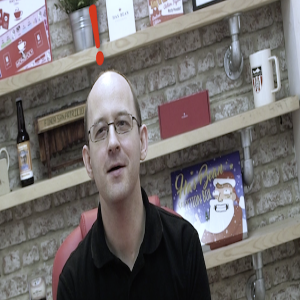
Thursday Dec 31, 2020
Episode 634: Brazil Fazenda Cachoeira da Grama Pulped Natural Yellow Bourbon
Thursday Dec 31, 2020
Thursday Dec 31, 2020
This farm and its coffee sparked a massive change in what I thought I knew about coffee. I remember the first time I ever cupped this coffee: time stood still as the cup opened my mind to what great coffee is and can be. Gabriel de Carvalho Dias, the farmer, continues to produce great coffee year on year, and this coffee still holds a very special place in my heart.
Gabriel is one of Brazil’s leading agronomists. His family owns several farms, all of which border one another. Fazenda Cachoeira da Grama is 417 hectares in size – that’s 4 square kilometres! That sounds huge, but it’s not uncommon for farms to be more than 1,000 hectares.
Because of the mountainous terrain, however, only 64 hectares are planted with coffee, and it's all picked and maintained by hand. The mill is located close to the spa town of Poços de Caldas, which is 45 minutes away from the farm.
Fazenda Cachoeira da Grama has been in the Carvalho Dias family since 1890. It's located in São Paolo state, just three miles from the border with Minas Gerais state. It enjoys the typical characteristics of the mountainous Mogiana and Sul de Minas regions, and it's located at an altitude of 1,100–1,250 metres above sea level.
Their farm has a school, a club and a full-sized soccer field for the employees and workers, and 47 houses – all with modern facilities. The wastewater is treated in order to avoid polluting the stream that runs across the farm. The farm has a small hydroelectric plant, and the farmers only buy energy during the peak harvest.
As well as providing support to the workers, the family have also invested in the farm's coffee processing facilities. This has allowed them to produce one of the most consistent and delicious coffees. They grow mostly Yellow Bourbon, but also Canario and Mundo Novo. It's well-established plant stock, and some of the original Bourbon varietal trees are as much as 108 years old.
They’ve also invested in trying new things, including planting some new varietals and trialling new fermentation experiments with the involvement of experts from the University of Lavras (UFLA) in Minas Gerais.
The Carvalho Dias family consider social and environmental sustainability to be very important. The farm has a programme of planting native species of trees to maintain a better ecological balance.
This one is super sweet and velvety - it’s all milk chocolate and hazelnuts, for the classic Brazilian coffee. There’s a little twist with some sweet red apple in there, but it’s classic again on the aftertaste with a gentle toffee.
- Country: Brazil
- State: São Paulo
- Municipality: São Sebastião da Grama
- Farm: Fazenda Cachoeira da Grama
- Owner: Lidolpho de Carvalho Dias and family
- Altitude: 1,100–1,250 m.a.s.l.
- Processing: Pulped Natural
- Varietal: Yellow Bourbon
CUPPING NOTES
Milk chocolate, hazelnut, red apple, toffee
Clean cup: (1–8): 6
Sweetness: (1–8): 6.5
Acidity: (1–8): 6
Mouthfeel: (1–8): 6.5
Flavour: (1–8): 6.5
Aftertaste: (1–8): 6.5
Balance: (1–8): 6.5
Overall: (1–8): 6.5
Correction: (+36): +36
Total (max. 100): 87
Roasting Information
Medium-dark - don't rush this, through first and push through the gap, dropping just as you're approaching second.
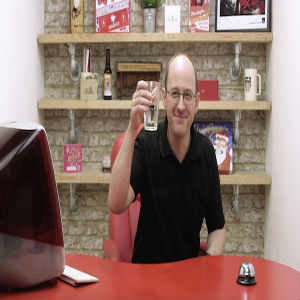
Wednesday Dec 23, 2020
Episode 633: In My Christmas Mug
Wednesday Dec 23, 2020
Wednesday Dec 23, 2020
It's Christmas, It's Christmas at Hasbean! Hip hip, oh hip hip hoorray, it's Christmas Day! (nearly!)
This year we wanted to treat all you lovely In My Mug subscribers with your very own, very exclusive (oooooh!) Christmas Blend! This special blend started with the wonderful San Jose Elefante, which gives it a crisp Champagne-like note. Then we added El Limon Washed Pacamara, for a sweet creamy base and citrus notes, and then a little Ana Sora Washed to accentuate the lemon and bring it all together. The perfect coffee to enjoy whilst you unwrap your Christmas gifts.
- 40% El Salvador San Jose Washed Elefante
- 40% Guatemala El Limon Washed Pacamara
- 20% Ethiopia Ana Sora Washed
CUPPING NOTES
Champagne, lemon, cream
Resting Recommendation
We recommend a 5-7 day rest after the date of roasting before brewing this coffee as espresso, but there's a lot of personal preference in that so, by all means, please brew whenever you like!
Roasting Information
Medium Dark - Although the flavours are light and bright here, the roast needs to be pushed up to the edge of second before it's dropped out, but keeping a fairly quick pace.

Saturday Dec 19, 2020
Episode 632: El Salvador Finca Las Brumas Washed SL28
Saturday Dec 19, 2020
Saturday Dec 19, 2020
Juan Jose Ernesto 'Neto' Menéndez Argüello belongs to the fourth generation of coffee farmers in his family. His father died in 1995. After completing his studies at university, Neto had the opportunity to start working in the coffee industry at J. Hill & Cia in 2000. He left J. Hill & Cia after five years and began his second coffee experience at JASAL.
Both companies gave him the opportunity to meet 'Grano de Oro' from another perspective, allowing him to learn the art and passion of cupping. He says those are very important in his life, and that they give him the opportunity to apply the coffee knowledge and experience he's gained through the years.
During his time in the coffee world, he has participated in various events like the Cup of Excellence (National Jury from 2003 to 2011), Q Auction, Q Grader, and the Star Cupper program organised by SCAA and CQI.
Las Brumas is located between 45 to 60 minutes from Santa Ana city. It has a cultivated area of 60 hectares' worth of coffee yield, all of which is at an altitude ranging from 1,450 to 1,700 metres above sea level (m.a.s.l.). It produces around 600 bags of coffee each year, and has an area of 35 hectares of virgin mountain at an altitude from 1,700 to 2,000 m.a.s.l.
The farm is located in the Sonsonate department near the area known as San Blas. Las Brumas has very rich volcanic soil; it's deep and very fertile, and has been generated by different Ilamatepec and Izalco volcanic eruptions throughout history.
One of the most important elements is the microclimate. It's very misty at the farm for most of the year, and that's why Neto decided to name the farm Finca Las Brumas. This amazing microclimate is generated when the warm air from the Pacific Ocean collides with the high peaks of Los Volcanes National Park (which comprises of the Santa Ana, Cerro Verde and Izalco volcanoes).
Due to its location between these three famous volcanoes in El Salvador, this unique microclimate reduces the amount of daylight that the coffee trees receive. This helps the coffee trees have a very slow photosynthesis, improving the maturation process; this, in turn, improves some attributes that are closely related to maturity, like the aroma, sweetness, acidity and flavour.
This is a medley of citrus and sugar. Up front it’s like lemon icing, before shifting into sweet clementines with a little hint of brown sugar in the background. The fruit keeps going on the aftertaste with passionfruit and orange.
- Country: El Salvador
- Department: Sonsonate
- Nearest city: Santa Ana
- Farm: Finca Las Brumas
- Producer: Juan Jose Ernesto 'Neto' Menéndez Argüello
- Varietal: SL28
- Processing system: Washed
- Altitude: 1,450–1,700 m.a.s.l.
- Type of soil: Sandy loam
- Average rainfall: 2,400 mm
- Types of shade: Ingas, sunk, cipers and belloto
- Flora and fauna present: Mountain trees, wildflowers, deer, squirrels, armadillos and snakes
CUPPING NOTES
Lemon icing, clementines, brown sugar, passionfruit, orange
Clean cup: (1–8): 6.5
Sweetness: (1–8): 6.5
Acidity: (1–8): 7
Mouthfeel: (1–8): 6
Flavour: (1–8): 7
Aftertaste: (1–8): 6
Balance: (1–8): 6
Overall: (1–8): 6.5
Correction:(+36): +36
Total: (max. 100): 87.5
Roasting Information
Medium - keep this one before second gets going, to highlight the simple but intense sweetness and the citrus.
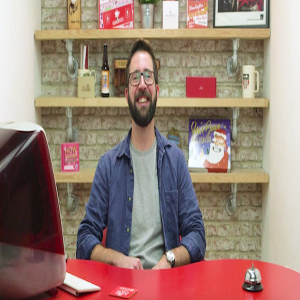
Saturday Dec 12, 2020
Episode 631: Costa Rica Finca Licho Yellow Honey Geisha
Saturday Dec 12, 2020
Saturday Dec 12, 2020
Buying coffee is simple, right? A farmer has coffee, you have money...easy! Well, not so much. One of the realities of coffee farming is unscrupulous coffee buyers turning up, promising the world and then not honouring their promises. For this reason, we never ask too much of the producers we work with for the first few years - you have to earn trust. Eventually, they trust us to be reliable and keep coming back. In the case of the Aguileras...well, it took them 8 years or so to warm to us. That’s just how it goes sometimes.
Here at Hasbean, we love to celebrate the awesome things that happen when strong relationships are built between roasters and producers, and Finca Licho is a shining example of that ethos. We first bought from this farm way back in 2007 when it was awarded 4th place in the Cup of Excellence. Fast forward thirteen years (gosh I feel old now), and Licho has become a firm favourite – both with customers and our little Hasbean team. The arrival of coffees from Finca Licho is greatly anticipated every year.
The farm is owned and run by Los Hermanos Aguilera. It's often translated as 'The Aguilera Brothers', but everyone is involved, not just the boys! The family of twelve brothers and sisters inherited the business from their parents, who started their coffee-growing career over 50 years ago. With the help of the third generation, the family work the farm with basically no hired labour except for during the harvest. They manage the mill and drying patios, fertilise, prune the coffee trees, and so on. They do it all themselves, and all year round. The Aguileras have a reputation for their deep understanding of quality at the farm and mill level, and this is why we are excited about working with them.
Situated 1,500 metres above sea level in the region of Naranjo, the farm is located in the volcanic Northern Cordiles corridor of the Western Valley, which is an area famous for its excellent coffee production. The majority of the coffee grown at Finca Licho is Villa Sarchi variety, but there's a smidge of Caturra too (they're about 65% and 25% of production respectively). The remainder of coffee production is made up of a mixture of more unusual varieties, some of which (this Geisha lot!) we've been able to snag this year now that they're established enough to provide a crop.
This coffee is yellow honey processed, which is just like the Pulped Natural method. The fruit is removed from the seed of the coffee bush and left to dry. The main difference is that there is no water involved when the cherry is removed, so mucilage sticks to the bean. This can be dangerous, but it's necessary in these parts of Costa Rica where water is limited: water is a precious commodity in this area of Naranjo, so this method suits the location very well.
The coffee ends up clustering whilst drying because there is so much mucilage. So the coffee either needs to be turned regularly to stop this happening, or it has to be broken up. Over-fermentation can happen at this stage and you can end up with a not-so-good cup, but the Aguilera brothers are well-versed in this method and are some of the most skilled in Costa Rica.
We’ve loved the Licho Villa Sarchi Yellow Honey since we first tried it, but this year we’ve got loads of other coffees from the Hermanos Aguileras! Two naturals from Licho, Villa Sarchi from Finca Toño, Pacamara and this, their Geisha. We’re super proud that we pay fair prices for all our coffees, but it isn’t just about a price per kilogram - it’s about how much you buy. Because we’re buying loads of coffee from them, it makes a bigger difference than if we just wanted to buy the Geisha on it’s own. With less coffee they’ll have to risk selling elsewhere (and not sure how much they’ll get for it), they’re doing better, so they share that back to us too with a little discount on this spectacular coffee - and we in turn pass that on to you.
P.s. did I mention, it was a lot from Licho which finished 11th in this year’s Cup of Excellence competition in Costa Rica? :)
Geisha is a varietal that has attracted lots of attention among coffee buyers and farmers, with some super high prices being paid for tiny lots. The name comes from the Gesha village in Ethiopia, where it’s said to have come from. I say 'said to' because it’s believed that coffee stock from this region made its way to Costa Rica (and then on to Panama) in the 1950s, but didn’t find much favour in its new home.
As with other experimental varietals that didn’t do particularly well, the plants were largely ignored or forgotten. Some grew wild or mixed into difficult-to-reach corners of farms. That means it’s difficult to be sure how close what we now call 'Geisha' is to those seeds from Ethiopia many years ago. Regardless, Geisha’s reputation suddenly hit the big time around 2004 as it attracted praise (and high prices) in the Taste of Panama competition, and it became a must-try for all you coffee geeks out there.
There has been talk of the name – Geisha vs Gesha – and we like to listen to the people that grew the coffee. It says 'Geisha' on our bags from the farm, so we're going with 'Geisha'.
This coffee is super sweet with big juicy mango. A lime acidity balances that and there's a floral edge to it all which adds an interesting complexity. On the finish I get yellow plums, moving in to orange on the aftertaste.
- Country: Costa Rica
- Region: Western Valley
- Province: Alajuela
- Nearest city: Naranjo de Alajuela
- Farm: Finca Licho
- Producers: Los Hermanos Aguilera
- Farm size: 28 hectares
- Coffee growing area: 9.10 hectares
- Altitude: 1,500 m.a.s.l.
- Varietal: Geisha
- Processing system: Yellow Honey
CUPPING NOTES
Mango, lime, floral, yellow plum, orange
Clean cup: (1–8): 7
Sweetness: (1–8): 8
Acidity: (1–8): 6.5
Mouthfeel: (1–8): 6
Flavour: (1–8): 6.5
Aftertaste: (1–8): 6
Balance: (1–8): 6.5
Overall: (1–8): 7
Correction:(+36): +36
Total: (max. 100): 89
Roasting Information
Medium – give this a little extra time to develop in the gap, dropping it once you're most of the way through the gap and definitely before you reach second crack.
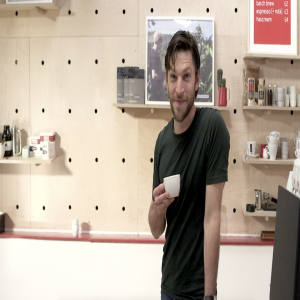
Saturday Dec 05, 2020
Episode 630: Costa Rica Toño
Saturday Dec 05, 2020
Saturday Dec 05, 2020
Grown by the Aguilera brothers (of Finca Licho fame) in the province of Naranjo, in the volcanic Northern Cordiles corridor of the Western Valley, this coffee is cultivated at an altitude of 1,450 metres above sea level. Like on Licho, most of their coffee is of the Villa Sarchi variety, which is native to the area and excellent in the cup. Villa Sarchi is a Bourbon mutation (similar to Caturra and Pacas) originally found in Naranjo. It's a dwarf variety with short internodes and (usually) higher-yielding production.
The Aguileras are twelve brothers and sisters, all of whom are involved in coffee as inherited from their parents. The brothers work the mill and farms themselves with basically no hired labour except for pickers during the harvest. With the help of the third generation, they work the mill and drying patios, prune the coffee fields, fertilise, and so on; and they do it all year round. The Aguilera brothers understand quality at the farm and mill level, and this is why we are excited about working with them. We first met them through the Cup of Excellence competition and they’ve continued to do well in that - in fact this year they had a lot from Licho finish 11th and a lot from Toño narrowly missed out on being included (it was top of the National Jury, meaning it did super well in the first stage but was a hair's breadth short of making it into the all-important International Jury which is the second stage of the competition!).
This coffee is honey processed, which is like the pulped natural method. The fruit is removed from the seed of the coffee bush and left to dry. The main difference is that there is no water involved when the cherry is removed, so mucilage sticks to the bean. This can be dangerous, but it's necessary in these parts of Costa Rica where water is limited: water is a precious commodity in this area of Naranjo, so this method suits the location very well.
The coffee ends up clustering whilst drying because there is so much mucilage. So the coffee either needs to be turned regularly to stop this happening, or it has to be broken up. Over-fermentation can happen at this stage and you can end up with a not-so-good cup, but the Aguilera brothers are well-versed in this method and are some of the most skilled in Costa Rica.
Want to know a little more about honey processing? Here's a video you might enjoy!
There's a fruit sweetness to it which reminds me of yellow plums, but in a jammy kind of way. As it cools, there's a creamy flavour coming forward too - think of a custard cream biscuit. Then on the aftertaste is just a little shoulder of cranberry.
- Country: Costa Rica
- Region: Western Valley
- Province: Alajuela
- Nearest city: Naranjo de Alajuela
- Farm: Toño
- Producers: Aguilera family
- Altitude: 1,450 m.a.s.l.
- Varietal: Villa Sarchi
- Processing system: Yellow Honey
CUPPING NOTES
Yellow plum, custard cream, cranberry
Clean cup: (1–8): 6.5
Sweetness: (1–8): 7
Acidity: (1–8): 6.5
Mouthfeel: (1–8): 6
Flavour: (1–8): 6.5
Aftertaste: (1–8): 6
Balance: (1–8): 6.5
Overall: (1–8): 6.5
Correction:(+36): +36
Total: (max. 100): 87.5
Roast Information
Medium – through first crack, slow it a little to let the sweetness develop fully, but drop it before second crack gets going.
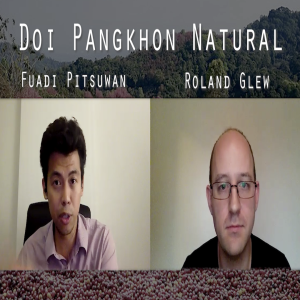
Saturday Nov 28, 2020
Episode 629: Thailand Doi Pangkhon Natural
Saturday Nov 28, 2020
Saturday Nov 28, 2020
Our sourcing partners Beanspire have been working in Doi Pangkhon for 7 years now. Doi Pangkhon, in Chiang Rai, has 300 households, each typically producing about 1-2 tons of parchment. In the past years, Beanspire worked with each house individually on their wet processing and bought their parchment before hulling and grading at our mill.
During the 2017-2018 season, there was substantial investment in a new wet mill and is currently being operated by a few trusted partner producers and allows for more control of the coffee processing. In 2018-2019 season, the mill was improved with the addition of a new roof, new pulpers and improved workflows. This harvest season, the mill received a new electricity generator, a cupping lab was built for the farmers, and new concentrate flooring was put down too.
This is a natural processed micro lot. Coffee cherries were floated and then laid on bamboo raised beds in a one-inch layer. Under-ripes and fermented cherries were sorted out throughout the drying process and the cherries were raked multiple times each day. After the cherries were dried, they're bagged to cure for two months before milling at the dry mill.
All of the villagers belong to Akha Hilltribe and they are very young for coffee farmers, 25-35 years old, mostly. The elevation at Doi Pangkhon is from 1,250-15,00 meters above sea level. This area is 19 degrees north of the equator, which means that this elevation is really high (e.g. Colombia Narino is 1 degree north, Costa Rica Terrazu is 9 degree north so coffee can grow beyond 1,600m there). Coffee cannot grow in Thailand above 1,550m.
The varietals here are a mixture of Typica, Catuai, and Chiang Mai (with many unknowns as well). Chiang Mai is a local hybrid that is a cross between SL28 x Caturra x Hibrido de Timor. So it's a catimor variant (like Colombia and Castillo varietals!) that's backcrossed with SL28 in order to improve the cup quality. It's a rust-resistant cultivar that's been developed by the late Thai King as part of his effort to eradicate opium plantation by the hill tribe in the North.
In terms of green preparation, the coffee went through a destoner, huller, size grader, density table and ended with hand-sorting. The green passed through density table multiple times. The coffee was shipped coffee in a triple-layered bag, which includes a cotton bag in the outer layer, High-Density Polyethylene (HDPE) in the middle layer and Grain Pro in the innermost layer.
Boozy Christmas pudding meets sticky toffee pudding right here. There's a hit of fruity booze which reminds me of sherry with a bit of orange peel. That's backed up by a sweet, velvety body with a big toffee sweetness and a sprinkle of raisins.
- Country: Thailand
- Region: Doi Pangkhong, Chiang Rai
- Altitude: 1,250–1,500 m.a.s.l.
- Processing method: Natural
- Varietals: Catuai, Typica and Chiang Mai
CUPPING NOTES
Sherry, orange, toffee, raisins
Clean cup: (1–8): 6.5
Sweetness: (1–8): 7
Acidity: (1–8): 6
Mouthfeel: (1–8): 6.5
Flavour: (1–8): 7
Aftertaste: (1–8): 6
Balance: (1–8): 6
Overall: (1–8): 6.5
Correction: (+36): +36
Total: (max. 100): 87.5
Roasting Information
Medium to medium-dark - through first and keep this going steadily towards second, looking for the first pops of second in the cooling tray.

Saturday Nov 21, 2020
Episode 628: El Salvador Finca La Ilusion Washed Bourbon
Saturday Nov 21, 2020
Saturday Nov 21, 2020
One of our all-time favourite farms returns once again!
I was visiting some of the farms we buy from during a buying trip to El Salvador in 2008. I actually arrived on the evening of the Cup of Excellence awards, and after the ceremony I was walking around when this guy who seemed very popular came over to me and introduced himself. He was Ernesto, or Neto, as I would come to know him. He'd just won the Cup of Excellence competition with his 'La Ilusión' farm, which is the sister farm to 'Alaska'. Alaska is a farm we had bought from via the Cup of Excellence the year before. Ernesto invited me to visit La Ilusión the next day, and it was so great to finally meet someone I had communicated with so many times via email!
Neto bought La Ilusión many years ago. The farm has coffee trees averaging 20+ years of age and is growing 95% Bourbon (70% is Red Bourbon and 25% is Orange Bourbon). The remaining 5% is a combination of other varietals, and it's possible to spot some Typica and Kenya trees too.
The farm is run using environmentally friendly practices because Neto is trying to maintain a balance with the surrounding ecosystem, which is part of a natural fauna corridor crucial to migratory and native birds. This is very important for Ernesto because La Ilusión neighbours one of the most important national parks in El Salvador, known as 'Los Andes'. It is nestled on the Santa Ana volcano and delineates his farm with dense pine and cypress forest, which itself provides a special micro-climate for La Ilusión.
The naturally processed version of this coffee was used by the 2011 World Barista champion, Alejandro Mendez. He caused a bit of a stir at the WBC by using a naturally-processed lot in his milk drinks and his signature drink, and then using the washed version (this coffee) as his espresso. It caused such a stir that he won! That year I'd roasted the coffee for Alejandro, and it had been grown by Neto. There was a magical moment backstage in which I was stood, polishing glass, with Alejandro and Neto; the grower, roaster and barista all stood together, preparing for the presentation. It's not too often you get such wonderful things happening! Aah, the wonders of barista competition. 😊
This begins with a big sweetness which reminds me of a Fruit Salad sweets. Then comes a clean pear in the finish, but with a delicate milk chocolate behind it and, on the aftertaste, a grating of lemon zest.
- Country: El Salvador
- Region: Apaneca-Ilamatepec mountain range
- Department: Santa Ana
- City: Santa Ana
- Farm: La Ilusión
- Farmer: Juan Jose Ernesto Menéndez Argüello
- Altitude: 1,750–1,850 m.a.s.l.
- Variety: Bourbon
- Processing system: Washed
CUPPING NOTES
Fruit Salad sweets, pear, milk chocolate, lemon zest
Clean cup: (1–8): 6.5
Sweetness: (1–8): 7
Acidity: (1–8): 6
Mouthfeel: (1–8): 6
Flavour: (1–8): 7
Aftertaste: (1–8): 6.5
Balance: (1–8): 6
Overall: (1–8): 6.5
Correction:(+36): +36
Total: (max. 100): 87.5
Roast Information
Medium to medium-dark - through first and slow it a little, pushing it towards the second but finishing the roast before second gets going.

Saturday Nov 14, 2020
Episode 627: Nicaragua Finca Limoncillo Natural Red Bourbon
Saturday Nov 14, 2020
Saturday Nov 14, 2020
The story of Hasbean and Finca Limoncillo is a long and exciting one - we've been working together for 13 years now! A bakers' dozen of coffee harvests shared between Matagalpa and Stafford make us very happy customers. I've been telling the story of this relationship for many years now and I don't intend to stop any time soon because it's such a big, big, big relationship for me 🌟 So much of where we are today has come from this relationship. I'm really proud of everything that's happened in the past, and super excited for where we can go in the future.
Limoncillo (and a handful of other fantastic farms) are owned by Dr. Erwin Mierich. Having previously lived and worked in the USA, he returned to Nicaragua in the mid-1990s. He explained, "While I was living in the United States, I worked as a gynaecologist, but then I had to come back to Nicaragua and lead this farm. Coffee has been my passion since I was a little boy". In the years we have worked together Erwin has visited Stafford many times, and it's always a pleasure to have him around. Last time he was visiting we ended up at a Weird Beard tap takeover in Manchester, talking to two Weird Beards about crazy brewing/coffee farming ideas! A coffee from Finca Limoncillo (the 'Funky Red Pacamara') is used in two of Weird Beard's beers: Black Perle and Double Perle, both of which are mighty delicious beers! A fitting collaboration to evolve from our continued business dealings when you consider how much time the family have dedicated to showing me how Latin American people like to party! On my very first visit to Nicaragua, the two people who showed me around were Erwin Jr and Steve Mierisch, the sons of the farmer. It was really cool, lifelong friends were made, and they taught me a lot about coffee production in the region.
Our relationship with Finca Limoncillo began in 2007, and back then we were buying their delicious coffee as part of a buying group. I cupped the coffee and instantly loved it - I knew I had to have it. It was a wonderful surprise to discover after the auction closed that it was owned by a family in Nicaragua who were already good friends of mine, and indeed probably the only people I knew from the whole country! The following year I visited the farm with our Nicaraguan importers and through my phenomenal Steve Pester Powers I got them to agree to bring the coffee into the UK for us (probably just to stop the flow of emails and phone calls from that annoying ginger bloke!)
A few years ago we were notified by the importers that they would not be buying the coffee again (for reasons other than the cup quality) which led to some frantic phone calls on my part, and a dig down the back of the sofa for enough loose change to fund buying 12 months' worth of coffee all in one go. There were many, many obstacles in the way of doing this deal, but we were lucky in that we were able to pull everything together in a very short amount of time. The upside of all of this is that we now work directly with Finca Limoncillo instead of going via anyone else. This coffee has gone from a one-off Cup of Excellence buy to a fantastic long-term relationship that I'm so very proud to have.
Finca Limoncillo is located in the Matagalpa region of Nicaragua and it's a whopping 171 hectares in size, which is heckin chonky! 109 hectares of this is used for coffee cultivation, with the remainder used to raise cattle and horses, and left to natural woodland. The family have heaps of policies and initiatives to make everything as sustainable as possible on this vast farming area: their use of chemicals is minimal, and the impact on the environment is always minimised by careful and considerate land management. It's owned and run by the Mierisch family who are, by now, very close friends, and well-respected producers in Nicaragua. They're known for their experimental processing, varietal work, and exceptional coffee.
The family employ over 3000 staff during the harvest, and at Limoncillo over 60 families live on the farm full time. They are seriously loved by the guys who work for them, more than any other producer we buy from there is genuine love and respect between the family and their workers. The fact that the family are our friends helps us drill down into the details of what they do for the people who work for them. This information continues to prove to me that good people grow good coffee. My last visit was February this year (right before the world went into lockdown!) and it was truly memorable - myself and Joanna (of Drop Coffee fame) sat up with Eleane until 2 am chatting and drinking rum together... the farm visit the next morning was a very quiet one! Luckily Limoncillo is a beautiful location, it boasts nine waterfalls within the farm, which is exactly the sort of place you want to be when you've had too much fun with friends the night before.
On the farm, the family:
- The employers pay their staff 30% more than what is typical minimum wage, as well as:
- Provide free housing for 60 families on their farms
- Provide free electricity and running water for their homes
- Provide free food for all workers
- Have free daycare facilities for families to use
- Provide free health care facilities on the farms
- Employee on-site teachers who educate their staff and teach other skills such as pottery and weaving. The goal is to help staff diversify their skills. The teachers are also paid twice the wages they would receive in the cities.
Rather like a slice of fruitcake, this is full of juicy raisins and sultanas, with a dark sweetness of brown sugar wrapping it up and a layer of marzipan to finish it off. The aftertaste goes back to the dark fruit, but with a delicate black grape.
- Country: Nicaragua
- Municipality: Yasica Norte
- Region: Matagalpa
- Farm name: Limoncillo
- Producers: The Mierisch family
- Farm size: 171 manzanas (hectares)
- Coffee growing area: 109 hectares
- Altitude: 1,200 m.a.s.l.
- Varietal: Red Bourbon
- Processing method: Natural
CUPPING NOTES
Raisin, sultana, marzipan, brown sugar, black grape
Clean cup: (1–8): 6
Sweetness: (1–8): 6.5
Acidity: (1–8): 6
Mouthfeel: (1–8): 6.5
Flavour: (1–8): 6.5
Aftertaste: (1–8): 6.5
Balance: (1–8): 6.5
Overall: (1–8): 6
Correction: (+36): +36
Total: (max. 100): 86.5
Roast Information
Medium-dark - Through first and push this right up to the first pops of second. This needs a bit of extra development time and may need a bit more heat than most coffees to get there too.

Saturday Nov 07, 2020
Episode 626: Thailand Doi Pangkhon Black Honey
Saturday Nov 07, 2020
Saturday Nov 07, 2020
Thailand is not traditionally known as a country that produces specialty coffee, yet it has been producing Arabica coffee since the early '80s. It started off as part of the Thai King’s opium eradication project. Because Arabica coffee thrives in conditions similar to those favoured by opium, it was selected as a substitution crop against the cultivation of the illicit plant.
Today, Thailand produces about 8,000 tonnes of Arabica coffee, mainly in the mountainous north of the country. On top of that, Thailand produces about ten times as much Robusta coffee, making it the third-largest coffee producer in Asia. Thai specialty coffee is rarely seen in the top specialty roaster segment abroad.
Thailand is a middle-income country and has a thriving local coffee market. That means relatively high production costs for a relatively undemanding coffee market.
Having said this, a strong specialty coffee segment is emerging. At least on the consumer side, the Third Wave is quite well established, with artisan roasters and cafés in Bangkok and Chang Mai. These roasters have recently begun to develop and buy local coffees too, not least because of import tariffs on foreign coffees.
However, this scene is still very small and hardly creates enough incentives for farmers to improve the quality of their coffee to specialty grade – at least for now. So even though they have been doing a great job at pushing the limits of Thai coffee, the specialty coffee scene would be greatly aided with more specialty coffee knowledge and global integration.
Our sourcing partners Beanspire have been actively assisting the farming families of Doi Pangkhon to improve the quality of their coffee. For this lot, they specifically worked with two entrepreneurial siblings of the Becheku family from the Akha hilltribe: Ata and Pupae.
At 31, Ata is the oldest of the three siblings. His entrepreneurial spirit and leadership is a force for change in his community. Pupae is Ata’s 27-year-old sister. She worked in both Korea and Taiwan before returning home to Doi Pangkhon to help her brother produce coffee. Pupae speaks fluent Chinese, and she's a Chinese language teacher at a local school.
The young Bechekus are third generation coffee farmers at Doi Pangkhon, and they represent one of the most inspiring aspects of the Thai coffee scene.
The future of the entire specialty industry around the world is unclear, because farmers and their children are quitting coffee manufacturing for other more lucrative opportunities.
Pupae and other people like her are returning home to work on coffee because they see a bright future in it, and they are farming coffee by choice; not because they lack other opportunities.
Doi Pangkhon’s coffee farms, at 1,250–1,500 metres above sea level, contain Caturra, Catimor, Bourbon and Typica cultivars. Such a mixture of cultivars allows farmers to mitigate various risks. For example, Bourbon and Typica tend to be weaker plants and sometimes come under attack from leaf rust and other diseases, but they have great cupping potential. Caturra and especially Catimor are more rust resistant and have a higher yield.
Due to the famously fragrant soil in the Chang Rai area, even these hybrid varieties are capable of producing complex and delicious coffees, yet they could struggle if grown in different areas.
Imagine a Cadbury's Wholenut - lashings of milk chocolate with a hefty sprinkle of hazelnut - and you're pretty much there with this coffee. Now throw in a sprinkle of macadamia nuts too and just a hint of caramel for a super moreish hug in a mug.
- Country: Thailand
- Region: Doi Pangkhong, Chiang Rai
- Altitude: 1,250–1,500 m.a.s.l.
- Processing method: Black Honey
- Varietals: Catuai, Typica & Chiang Mai
CUPPING NOTES
Milk chocolate, hazelnut, macadamia nut
Clean cup: (1–8): 6
Sweetness: (1–8): 6.5
Acidity: (1–8): 6
Mouthfeel: (1–8): 6.5
Flavour: (1–8): 6.5
Aftertaste: (1–8): 6
Balance: (1–8): 6.5
Overall: (1–8): 6.5
Correction: (+36): +36
Total: (max. 100): 86.5
Roasting Information
Medium to Medium Dark - keep pushing it steadily through the gap, looking for the first pops of second as it cools.
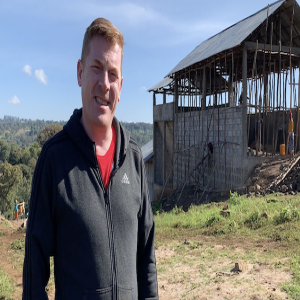
Saturday Oct 31, 2020
Episode 625: Ethiopia Ana Sora Washed
Saturday Oct 31, 2020
Saturday Oct 31, 2020
Ana Sora is a private farm owned by second-generation coffee farmer Israel Degfa. He grew up immersed in various aspects of the coffee industry as his father was a mill manager and his mum sold coffee in the local bus station to commuters. The estate is located in the Guji Zone, due East of Yirgacheffe. It’s western neighbour is Uraga and to the East is Adola - both places where Israel owns mills as well.
As coffee farms go, it's a very new farm: it was only formed in 2013. It's located at a whopping altitude of between 1,900 and 2,350 metres above sea level. It's a gorgeous but somewhat tiring walk to get there! (It's not all just holiday snaps, this coffee buying malarkey!)
We're now into our fifth wonderful year of roasting coffee from Ana Sora, and it's as exciting to see it return in 2020 as it was to roast it for the first time back in 2016! This coffee represents lots of time and energy working at the farmer's gate in Ethiopia, and it's one of the most unique coffees I've ever tasted.
My last visit to the farm was in December 2019 and I'm so pleased I was able to potter by and catch up with Israel before all this pandemic hoo-hah kicked off. Stevie Storytime 📕🙌... during my most recent trip we were driving together down a rough road that was part-way through being built when we blew out two tires at the same time. We had been travelling for 12 hours in the car and there wasn't a tyre shop anywhere nearby - so we got stuck in the middle of nowhere in the dark for three hours 😱 Thankfully one of the farm managers kindly drove out to us with a car which we took back to the house, and he slept in our car all night to keep an eye on it until the tyre shop opened. What a top bloke, he was our knight in shining armour!
It is unusual to find private farms of 250 hectares in Ethiopia (the norm being smallholder gardens of less than 2 hectares each) and even more unusual to find them at such high altitudes. Ethiopian coffee farms are high in general compared to other producing countries (mostly between 1700 - 2100 masl) but Ana Sora is on the higher side still, reaching as high as 2350 masl. The altitude helps with the slower maturation of the coffee cherry (owing in part to the generally lower temperatures and cooler nights) and allows more time for the plant to develop, which contributes to the super unique cup profile we see in coffees from Ethiopia.
Coffee growing is popular locally, and Israel also sources coffee from the surrounding area. Each washing station has around 1000-2000 members, each with one of the small home coffee plots typical of Ethiopia producing very small quantities. The area is populated by smallholder farmers who speak Oromife and are of Oromo ethnicity. Israel believes in helping these farmers through education in husbandry, and also through financial assistance.
Situated alongside the river Turo, the farm used to only produce naturally processed coffee. However, in 2018 the farmers decided to take advantage of the water source and built a washing station capable of producing washed coffee too, so TADAH ✨ here we have it!
This is a unique coffee from a unique relationship, and I'm massively excited to share it with you once again.
Up front is a hit of florals and sweet lemon, which the best Washed Yirgacheffes are known for. That sweet lemon gets a tropical edge as it's joined by persimmon, before swinging back into classic territory with a black tea like finish. Super unusual (and delicious) though is the aftertaste, where fresh raspberry kicks in.
- Country: Ethiopia
- Area: Guji zone
- Nearest town: Yirgacheffe
- Farm: Ana Sora
- Varietal: Indigenous wild varietals
- Processing: Washed
- Owner: Israel Degfa
- Founding year: 2013
- Altitude: 1,900–2,350 m.a.s.l.
- Farm size: 250 hectares, of which 150 hectares are coffee
CUPPING NOTES
Floral, sweet lemon, persimmon, black tea, raspberry
Clean cup: (1–8): 7
Sweetness: (1–8): 6.5
Acidity: (1–8): 6.5
Mouthfeel: (1–8): 6
Flavour: (1–8): 7
Aftertaste: (1–8): 8
Balance: (1–8): 6
Overall: (1–8): 7
Correction: (+36): +36
Total: (max. 100): 90
Roasting Information
Light to Medium - straight through first crack, keep it pretty quick and drop once you reach the gap.

Saturday Oct 24, 2020
Episode 624: Nicaragua Finca Limoncillo Pulped Natural Ethiosar
Saturday Oct 24, 2020
Saturday Oct 24, 2020
The story of Hasbean and Finca Limoncillo is a long and exciting one - we've been working together for 13 years now! A bakers' dozen of coffee harvests shared between Matagalpa and Stafford make us very happy customers. I've been telling the story of this relationship for many years now and I don't intend to stop any time soon because it's such a big, big, big relationship for me 🌟 So much of where we are today has come from this relationship. I'm really proud of everything that's happened in the past, and super excited for where we can go in the future.
Limoncillo (and a handful of other fantastic farms) are owned by Dr. Erwin Mierich. Having previously lived and worked in the USA, he returned to Nicaragua in the mid-1990s. He explained, "While I was living in the United States, I worked as a gynaecologist, but then I had to come back to Nicaragua and lead this farm. Coffee has been my passion since I was a little boy".
In the years we have worked together Erwin has visited Stafford many times, and it's always a pleasure to have him around. Last time he was visiting we ended up at a Weird Beard tap takeover in Manchester, talking to two Weird Beards about crazy brewing/coffee farming ideas! A coffee from Finca Limoncillo (the 'Funky Red Pacamara') is used in two of Weird Beard's beers: Black Perle and Double Perle, both of which are mighty delicious beers! A fitting collaboration to evolve from our continued business dealings when you consider how much time the family have dedicated to showing me how Latin American people like to party! On my very first visit to Nicaragua, the two people who showed me around were Erwin Jr and Steve Mierisch, the sons of the farmer. It was really cool, lifelong friends were made, and they taught me a lot about coffee production in the region.
Our relationship with Finca Limoncillo began in 2007, and back then we were buying their delicious coffee as part of a buying group. I cupped the coffee and instantly loved it - I knew I had to have it. It was a wonderful surprise to discover after the auction closed that it was owned by a family in Nicaragua who were already good friends of mine, and indeed probably the only people I knew from the whole country! The following year I visited the farm with our Nicaraguan importers and through my phenomenal Steve Pester Powers I got them to agree to bring the coffee into the UK for us (probably just to stop the flow of emails and phone calls from that annoying ginger bloke!)
A few years ago we were notified by the importers that they would not be buying the coffee again (for reasons other than the cup quality) which led to some frantic phone calls on my part, and a dig down the back of the sofa for enough loose change to fund buying 12 months' worth of coffee all in one go. There were many, many obstacles in the way of doing this deal, but we were lucky in that we were able to pull everything together in a very short amount of time. The upside of all of this is that we now work directly with Finca Limoncillo instead of going via anyone else. This coffee has gone from a one-off Cup of Excellence buy to a fantastic long-term relationship that I'm so very proud to have.
Finca Limoncillo is located in the Matagalpa region of Nicaragua and it's a whopping 171 hectares in size, which is heckin chonky! 109 hectares of this is used for coffee cultivation, with the remainder used to raise cattle and horses, and left to natural woodland. The family have heaps of policies and initiatives to make everything as sustainable as possible on this vast farming area: their use of chemicals is minimal, and the impact on the environment is always minimised by careful and considerate land management.
It's owned and run by the Mierisch family who are, by now, very close friends, and well-respected producers in Nicaragua. They're known for their experimental processing, varietal work, and exceptional coffee. The family employ over 3000 staff during the harvest, and at Limoncillo over 60 families live on the farm full time.
They are seriously loved by the guys who work for them, more than any other producer we buy from there is genuine love and respect between the family and their workers. The fact that the family are our friends helps us drill down into the details of what they do for the people who work for them. This information continues to prove to me that good people grow good coffee. My last visit was February this year (right before the world went into lockdown!) and it was truly memorable - myself and Joanna (of Drop Coffee fame) sat up with Eleane until 2 am chatting and drinking rum together... the farm visit the next morning was a very quiet one! Luckily Limoncillo is a beautiful location, it boasts nine waterfalls within the farm, which is exactly the sort of place you want to be when you've had too much fun with friends the night before.
On the farm, the family:
- The employers pay their staff 30% more than what is typical minimum wage, as well as:
- Provide free housing for 60 families on their farms
- Provide free electricity and running water for their homes
- Provide free food for all workers
- Have free daycare facilities for families to use
- Provide free health care facilities on the farms
- Employee on-site teachers who educate their staff and teach other skills such as pottery and weaving. The goal is to help staff diversify their skills. The teachers are also paid twice the wages they would receive in the cities.
This year we have purchased 9 phenomenal lots from Limoncillo (that meanie Roland wouldn’t let me buy as many as I wanted to!), which makes up a total of 21 from the Mierisch family's farms combined - 19 Nicaraguan and 2 Honduran.
Right then folks - it's time to learn all about Ethiosar! This coffee varietal is a stable hybrid plant, which is the result of lots of clever (and slightly convoluted, so bear with me) mixing of other coffee varieties. To make up a batch of Ethiosar we're going to need a pinch of Sudan Rume, a sprinkle of Timor, and a couple dashes of Villa Sarchi. Fun ingredients, right? A cross of Villa Sarchi (an improved Caturra from Costa Rica) and Timor (a mix of Robusta and Arabica varieties) makes a Sarchimor. That Sarchimor is then crossed with Sudan Rume (a very old Ethiopian variety), and the offspring of these plants is then crossed back once again with Villa Sarchi... all of that hard work and genetic back-and-forth results in the awesome Ethiosar!
Now some people will turn their noses up at the mention of Timor due to it's Robusta heritage, but Catimors (the name for the group of varieties made by crossing Timor with Caturra-based varities) are very useful. Through skilled breeding we can harness the practical aspects of Robusta (high yield, resistance to pests and disease, growth at lower altitudes) while still retaining the positive cup characteristics of Arabica varieties. Ethiosar has a very small percentage of Catimor in it, thus making it very resistant to leaf rust in most parts of the world. Both Sudan Rume and Villa Sarchi are known for their great cup characteristics.
What Ethiosar does is increase production by up to 40% whilst only needing 2,800 plants per manzana, whereas with Caturra you would need 4,000 plants. This may not seem important until you begin to think that each plant needs fertiliser. So not only are you getting more yield but it's cheaper to grow because you need less fertiliser and less plants (plants have to be grown or bought), and it's also quicker to pick. On top of all of this, it's super tasty.
This coffee immediately shouts chocolate bar to me - and in particular a Twix. There's loads of milk chocolate up front, but as it cools a little, you'll find plenty of caramel in there too, whilst the finish is where the biscuit comes in. There's a delicate green apple edge which works in perfect balance with the chocolate and caramel.
- Country: Nicaragua
- Municipality: Yasica Norte
- Region: Matagalpa
- Farm name: Limoncillo
- Producer: The Mierich family
- Farm size: 171 hectares
- Coffee growing area: 109 hectares
- Altitude: 1,200 m.a.s.l.
- Varietal: Ethiosar (Ricardo)
- Processing system: Pulped Natural
CUPPING NOTES
Milk chocolate, caramel, green apple.
Clean cup: (1–8): 6
Sweetness: (1–8): 7
Acidity: (1–8): 6
Mouthfeel: (1–8): 6
Flavour: (1–8): 7
Aftertaste: (1–8): 6
Balance: (1–8): 6.5
Overall: (1–8): 6.5
Correction: (+36): +36
Total: (max. 100): 87
Roasting Information
Medium-dark - just through to the first pops of second on the drop, no more. This one's tricky to judge as it's got a very loud crack and may need slightly more heat than you normally need to get to that point.

Saturday Oct 17, 2020
Episode 623: Kenya Kiriga Estate AA
Saturday Oct 17, 2020
Saturday Oct 17, 2020
The first coffee bush at Kiriga Estate was planted in approximately 1954 by colonial settlers. At about the same time, less than ten kilometres away along the same Kigio road, a young boy (Aloysius Gakunga, son of the chief for the larger Murang'a county) helped his father – Senior Chief Ndungíu Kagori – plant the first coffee seedling in the area. The area was known as Gaitegi village, Muranga Location 1 (Loco One). A love affair with coffee had been born!
Several years went by and the young boy grew up. He was riding his bicycle along Kigio road and, as he rode past the vast – by now well-established – coffee estates, he promised himself that he would one day own one of them.
He realized this dream in 1976.
The boy, or Mr A. N. Gakunga, sadly passed away in July 2014. By the time of his death, Mr Gakunga had passed his love of coffee and the mantle of Kiriga coffee estate on to Dr Brian Ndungíu Gakunga. Brian was his second child, and the eldest son out of his six children. According to Kikuyu cultural naming systems, Brian is named after Mr Gakungaís' father, who was both his grandfather and his pioneer coffee farmer.
- Dr Brian Gakunga is a coffee farmer who is well known in Kenyan coffee circles. He is a founding member and a former long-serving Honorary Secretary of the Kenya Coffee Producers Association, which is a national farmers' organisation that works to promote the economic and social interests of the coffee farmers through active participation in the national and international arena.
- Brian is also a former Board Member and Chairman of Transitional Exchange Committee (operationally, he was the then-Chairman of Nairobi Coffee Exchange), where over 90% of all of Kenya's coffee is currently sold. He's also currently the Founding Chairman of Africa Coffee Farmers' Network.
- Africa Coffee Farmers' Network represents the interests of coffee farmers, as spelt out in the organisation's core objective of improving the earnings of poor coffee farmers in order to break the vicious cycle of poverty. One way of doing this is by getting direct sales for the farmers.
Kiriga Estate sits between 1,550 and 1,650 metres above sea level. It is approximately five kilometres from Thika town, which is an industrial town in the central province of Kenya. It's four kilometres from Blue Posts hotel, which has the famous Chania and Thika falls. Thika lies 50 kilometres northeast of Nairobi.
Administratively, Kiriga coffee estate is in the Gatanga constituency of Muranga county, and it's separated from Kiambu county by the Chania river.
Kiriga coffee is predominantly SL28 variety (notable for its world-renowned cup quality). The farm has an estimated two hectares of Ruiru 11 variety (which has improved resistance to coffee berry disease and leaf rust); some K7 variety (similar characteristics as SL28, but with better resistance to leaf rust compared to SL28); and a field of the newest Batian variety. About 60% of the coffee that the estate produces is AA/AB.
Like any natural product, each coffee bean is different - some bigger, some smaller, some longer, some rounder...that's lead coffee buyers many years ago to begin separating the coffee by the size of the bean.
Throughout the world, this is done by screens - like a stack of flat colanders, with each layer having slightly smaller holes in it than the layer above. Whatever the smallest size a bean passes through, that’s it’s size. In most places, they’re named by 1/64th inch - so a screen 18+ means all the beans are 18/64th of an inch or bigger. Simple, right?
Well...in Kenya they use the same screens, but give them different names. An “AA” is screen 17 and 18, an “AB” is screen 16 and 15 and anything smaller (but still a whole bean) is a “C”. There’s one more class you might have tried - “PB” or Peaberry. That’s a bit different again, but it’s usually separated from the other beans because the round cross-section of a peaberry lets it pass through the holes of a screen easily.
We have AA, AB and C from Kiriga this year - so big beans, medium beans & little beans! You’ll also find quite a few peaberries in with the C (they didn’t separate them out into a different lot). Traditionally, the AA has got the highest prices (they’re about 15-20% of the crop), with AB being a bit cheaper and C going into commodity coffee. However, Brian from Kiriga sent us his C to try last year for the first time and we were wow-ed - it’s really sweet and nice - so we began buying it and are excited to be able to share it with you again, check it out here.
All coffee activities at Kiriga are carried out at a factory level, from the coffee nursery to all the farm operations (pruning, weed control, nutrition, irrigation, basin digging, disease control, infilling, mulching, and planting). Wet mill operations are also carried out on the factory level. Kiriga delivers both parchment coffee and Mbuni (naturals) to the commercial dry mill for milling and grading, in preparation for sale at coffee auctions and via indirect sale.
In addition to growing coffee the estate also has, I was told, shoats (sheep and goats), a dairy, and the potential to keep fish. It's all about diversity, and what's more diverse than a 'shoat'?! The estate is also occasionally visited by two hippos, in addition to some bird-life, while also being the home of a family of monkeys.
Kiriga irrigated all its coffee trees – despite the crippling electricity costs involved – during the dry season, in order to ensure their high standards were maintained despite the weather.
By the end of 2015, the estate had changed the cycle of its coffee trees by removing the old heads and growing new heads, which in return gave a higher yield of bold beans with the characteristic 'Kiriga coffee characteristics'. Over 40% of the 'old heads' had to go! This is way above the recommended 25%, and we expect to have decreased yield but increased quality as a result.
Many of the estate farms around Kiriga have been sold off to make housing estates. Whilst this is a challenge for the future, in the immediate period Brian is actually finding it helpful because there are more skilled pickers available (who were working on the other farms).
A delightful combination of blackberries and apples, this starts with juicy blackberries and blackcurrants. It's all got a sprinkling of soft dark sugar which will come to the fore as it cools, but on the finish and aftertaste is that green apple which balances the dark berries perfectly.
- Country: Kenya
- Constituency: Gatanga
- County: Muranga
- Nearest town: Thika
- Estate: Kiriga
- Farmer: Dr Brian Gakunga
- Altitude: 1,550–1,650 m.a.s.l.
- Varietals: SL28 AA & Ruiru 11 AA
- Processing method: Washed
CUPPING NOTES
Blackberry, blackcurrant, brown sugar, green apple
Clean cup: (1–8): 6.5
Sweetness: (1–8): 6.5
Acidity: (1–8): 7
Mouthfeel: (1–8): 6
Flavour: (1–8): 7
Aftertaste: (1–8): 6.5
Balance: (1–8): 6.5
Overall: (1–8): 7
Correction:(+36): +36
Total (max. 100): 89
Roast Information
Medium - through first and nicely into the gap, keeping the temperature going up fairly quickly to highlight the vibrant acidity. Finishing the roast just before second crack gets going.
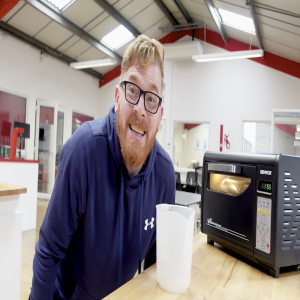
Saturday Oct 10, 2020
Episode 622: Kenya Kiriga Estate AB
Saturday Oct 10, 2020
Saturday Oct 10, 2020
The first coffee bush at Kiriga Estate was planted in approximately 1954 by colonial settlers. At about the same time, less than ten kilometres away along the same Kigio road, a young boy (Aloysius Gakunga, son of the chief for the larger Murang'a county) helped his father – Senior Chief Ndungíu Kagori – plant the first coffee seedling in the area. The area was known as Gaitegi village, Muranga Location 1 (Loco One). A love affair with coffee had been born!
Several years went by and the young boy grew up. He was riding his bicycle along Kigio road and, as he rode past the vast – by now well-established – coffee estates, he promised himself that he would one day own one of them.
He realized this dream in 1976.
The boy, or Mr A. N. Gakunga, sadly passed away in July 2014. By the time of his death, Mr Gakunga had passed his love of coffee and the mantle of Kiriga coffee estate on to Dr Brian Ndungíu Gakunga. Brian was his second child, and the eldest son out of his six children. According to Kikuyu cultural naming systems, Brian is named after Mr Gakungaís' father, who was both his grandfather and his pioneer coffee farmer.
- Dr Brian Gakunga is a coffee farmer who is well known in Kenyan coffee circles. He is a founding member and a former long-serving Honorary Secretary of the Kenya Coffee Producers Association, which is a national farmers' organisation that works to promote the economic and social interests of the coffee farmers through active participation in the national and international arena.
- Brian is also a former Board Member and Chairman of Transitional Exchange Committee (operationally, he was the then-Chairman of Nairobi Coffee Exchange), where over 90% of all of Kenya's coffee is currently sold. He's also currently the Founding Chairman of Africa Coffee Farmers' Network.
- Africa Coffee Farmers' Network represents the interests of coffee farmers, as spelt out in the organisation's core objective of improving the earnings of poor coffee farmers in order to break the vicious cycle of poverty. One way of doing this is by getting direct sales for the farmers.
Kiriga Estate sits between 1,550 and 1,650 metres above sea level. It is approximately five kilometres from Thika town, which is an industrial town in the central province of Kenya. It's four kilometres from Blue Posts hotel, which has the famous Chania and Thika falls. Thika lies 50 kilometres northeast of Nairobi.
Administratively, Kiriga coffee estate is in the Gatanga constituency of Muranga county, and it's separated from Kiambu county by the Chania river.
Kiriga coffee is predominantly SL28 variety (notable for its world-renowned cup quality). The farm has an estimated two hectares of Ruiru 11 variety (which has improved resistance to coffee berry disease and leaf rust); some K7 variety (similar characteristics as SL28, but with better resistance to leaf rust compared to SL28); and a field of the newest Batian variety. About 60% of the coffee that the estate produces is AA/AB.
Like any natural product, each coffee bean is different - some bigger, some smaller, some longer, some rounder...that's lead coffee buyers many years ago to begin separating the coffee by the size of the bean.
Throughout the world, this is done by screens - like a stack of flat colanders, with each layer having slightly smaller holes in it than the layer above. Whatever the smallest size a bean passes through, that’s it’s size. In most places, they’re named by 1/64th inch - so a screen 18+ means all the beans are 18/64th of an inch or bigger. Simple, right?
Well...in Kenya they use the same screens, but give them different names. An “AA” is screen 17 and 18, an “AB” is screen 16 and 15 and anything smaller (but still a whole bean) is a “C”. There’s one more class you might have tried - “PB” or Peaberry. That’s a bit different again, but it’s usually separated from the other beans because the round cross-section of a peaberry lets it pass through the holes of a screen easily.
We have AA, AB and C from Kiriga this year - so big beans, medium beans & little beans! You’ll also find quite a few peaberries in with the C (they didn’t separate them out into a different lot). Traditionally, the AA has got the highest prices (they’re about 15-20% of the crop), with AB being a bit cheaper and C going into commodity coffee. However, Brian from Kiriga sent us his C to try last year for the first time and we were wow-ed - it’s really sweet and nice - so we began buying it and are excited to be able to share it with you again, check it out here.
All coffee activities at Kiriga are carried out at a factory level, from the coffee nursery to all the farm operations (pruning, weed control, nutrition, irrigation, basin digging, disease control, infilling, mulching, and planting). Wet mill operations are also carried out on the factory level. Kiriga delivers both parchment coffee and Mbuni (naturals) to the commercial dry mill for milling and grading, in preparation for sale at coffee auctions and via indirect sale.
In addition to growing coffee the estate also has, I was told, shoats (sheep and goats), a dairy, and the potential to keep fish. It's all about diversity, and what's more diverse than a 'shoat'?! The estate is also occasionally visited by two hippos, in addition to some bird-life, while also being the home of a family of monkeys.
Kiriga irrigated all its coffee trees – despite the crippling electricity costs involved – during the dry season, in order to ensure their high standards were maintained despite the weather.
By the end of 2015, the estate had changed the cycle of its coffee trees by removing the old heads and growing new heads, which in return gave a higher yield of bold beans with the characteristic 'Kiriga coffee characteristics'. Over 40% of the 'old heads' had to go! This is way above the recommended 25%, and we expect to have decreased yield but increased quality as a result.
Many of the estate farms around Kiriga have been sold off to make housing estates. Whilst this is a challenge for the future, in the immediate period Brian is actually finding it helpful because there are more skilled pickers available (who were working on the other farms).
Starting off with a flash of bright grapefruit, the sweetness quickly comes in and it swings into a big mouthful of blood orange. The fruit flavours shift darker still with blackcurrant, which really fills out the aftertaste.
- Country: Kenya
- County: Muranga
- Constituency: Gatanga
- Nearest town: Thika
- Estate: Kiriga
- Farmer: Dr Brian Gakunga
- Altitude: 1,550–1,650 m.a.s.l.
- Processing method: Washed
- Varietals: SL28 AB & Ruiru 11 AB
CUPPING NOTES
Grapefruit, blood orange, blackcurrant
Clean cup: (1–8): 6.5
Sweetness: (1–8): 6
Acidity: (1–8): 7
Mouthfeel: (1–8): 6
Flavour: (1–8): 7
Aftertaste: (1–8): 7
Balance: (1–8): 6
Overall: (1–8): 7
Correction:(+36): +36
Total (max. 100): 88.5
Roast Information
Medium - through first and nicely into the gap, keeping the temperature going up fairly quickly to highlight the vibrant acidity. Finishing the roast just before second gets going.
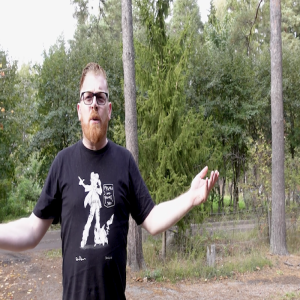
Saturday Oct 03, 2020
Episode 621: Costa Rica ARBAR El Manantial
Saturday Oct 03, 2020
Saturday Oct 03, 2020
When we found this farm for the very first time all the way back in 2013 we knew very little about it, so little in fact that the coffee didn't even have an official name! Back then all we knew was that the coffee was grown by a gentleman called Carlos Arrieta and it was really, really delicious! However, since then I've been lucky enough to visit Carlos on my trips to Costa Rica and, over the past few years, have found out lots more.
The farm is located in the Western Valley region near to the town of Lourdes de Naranjo. It's located at 1,600 meters above sea level and contains mostly Caturra, Catuai + a tiny bit of Villa Sarchi, there are also plans to plant some small micro-lots too in the future. El Manantial is actually one of Carlos's four farms...
- La Casa - mostly planted with Geisha and Kenya!
- La Isla - run by Maria’s niece and only just starting to produce coffee, it sits at 1,400 m.a.s.l. and 1.4 hectares in size, and is planted with Villa Sarchi, Kenya, Geisha and Ethiopia
- El Oasis - slightly smaller than El Manantial and produces around 6,000kg of fresh cherries each year
- El Manantial - around 3 hectares in size and produces around 8,500kg of fresh cherries each year (amounts to just over 1,000kg of green coffee when processed)
Carlos runs the farm with his wife and children, Maria Isabel, Yessica, Karen, Esteban and Jose Ignacio. He has owned this farm for almost twenty years but only started processing the coffee himself in 2014 (while still paying someone else to pulp it for him). He hadn't been able to present his coffee to a single buyer previously, so he would send it to the exporter we use in Costa Rica and, thankfully, that's how we found him!
The mill name "ARBAR" comes from the combined family names - Carlos ARietta and Maria BARboza - ARBAR. Their children are Yessica, Karen, Esteban & Jose Ignacio.
Carlos is very active in the local community and they have close relationships with their neighbours - which includes CoE winning mills like Herbazu, Vista Al Valle and Sumava. The farm operates mostly Organic processes, but they're not Organic certified. They believe in the value of biodiversity on the farms, and plants like fruit trees are positioned among the coffee plants to provide shade and to help the soil. These trees also provide food for the family. They even have a few sheep and other animals, with the farm being as self-sufficient as possible. They have one full-time employee, who lives on the farm.
When Carlos and his family started selling to us, it gave them a chance to
try new things; the prices that we pay gave them the opportunity to take bigger risks. One of the ways they did this was by trying small plantings of new varietals including Bourbon, Kenya (SL28) and Geisha which we saw some of for the first time last year and are really excited to welcome back again soon.
This coffee has been processed at the ARBAR micromill using the Red Honey process. Honey processing is somewhat similar to a Pulped Natural (but uses less water), falling somewhere in between a Washed and a Natural coffee both in terms of contact between the cherry mucilage and the bean during drying time and in the resulting flavour profile. The outer skin and fruit pulp is removed from the seed (bean) of the coffee inside, and it's left to dry. The colour in the name refers to the amount of sticky fruit that's left on the surface of the seed after depulping - darker indicates more / lighter indicates less. This method can present some risk of over fermentation during processing but water is a precious commodity in this area of Costa Rica, so this method suits the location very well. Carlos definitely has the skills to pay the bills though so no worries about mucking up the Honeys at ARBAR!
What hits me first in this coffee is loads of stone fruit sweetness. It’s all nectarines and greengages, with a lovely silky texture. On the finish, there’s a little waft of lemon wrapping it all up.
- Country: Costa Rica
- Region: Western Valley
- Town: Lourdes de Naranjo
- Farm: El Manantial
- Producer: Carlos Arrieta
- Micro mill: ARBAR
- Altitude: 1,600 m.a.s.l.
- Varietals: Caturra, Catuai & Villa Sarchi
- Processing system: Red Honey
CUPPING NOTES
Nectarine, greengage, lemon
Clean Cup: (1-8): 6.5
Sweetness: (1-8): 7
Acidity: (1-8): 6
Mouthfeel: (1-8): 6.5
Flavour: (1-8): 7
Aftertaste: (1-8): 6
Balance: (1-8): 6
Overall: (1-8): 7
Correction:(+36): +36
Total (max 100): 88
Roast Information
Medium - through first crack, let it develop a little in the gap but drop this before you get to second to preserve that fruit sweetness.
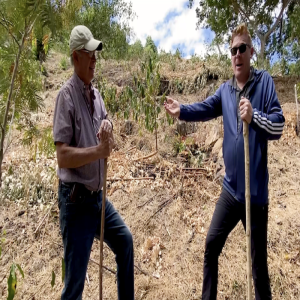
Saturday Sep 26, 2020
Episode 620: El Salvador Finca Argentina Fincona 2 Washed Bourbon
Saturday Sep 26, 2020
Saturday Sep 26, 2020

Finca Argentina is based in the Apaneca-Ilamtepec mountain range, near the town of Turin in the Ahuachapán department. The beautiful 35-hectare farm has natural hot springs dotted all over, and is situated at an altitude of 1300 metres above sea level. My very dear friend Alejandro Martinez owns the farm along with his father Mauricio, who inherited the land along with a handful of other coffee farms in the region from Guillermo Martinez, MD (Ale's grandfather) back in 2008.
The family currently have 2 farms locally, the other being Finca Manuella that our lovely friends at 3fe regularly buy from, that they run with the help of a farm manager and approximately 25-30 staff during the non-picking season. Argentina have taken a supportive approach with their labour: this team have been with the farm for 7 years now and work on maintaining and tending to the plants year-round. The number of workers goes up to 50 during the busy harvest period, including the staff members' families who also participate in the harvest cycle to help them complement their income. Furthermore, Ale and Mauricio host a yearly lunch with the crew to thank them for their hard work, and plant corn on the land for their employees and each staff member gets about 50lbs annually to help support their families. They have also been contributing labour and materials to support the necessary improvements to the access road for the community. This is a joint effort with the municipality, community leaders and a few other local farmers.
I've been working with the family since back in 2008, and in that time our relationship has gone from strictly professional to Ale being one of my closest friends. He became involved in coffee after he had just relocated to El Salvador from New York, where he'd been working as a city banker. With his son Lukas on the way and the hustle and bustle of New York, no place to bring up a family, the draw of home and El Salvador was just far too strong to ignore. While looking for work in El Salvador, Ale decided to help his father with some of his business interests and investments, including the coffee farms he had just inherited.
One of the investments pricked Ale’s interest, and this was a farm called Finca Argentina. The reason it really got Ale's attention was that he saw the farm once yielded loads of coffee but was producing a fraction of its old productivity. His father gave him permission to see what could be done to make the farm successful again. Historically, Argentina used to produce on average 1250 quintales (1 quintal = 100 pounds) with some years even producing 1500 or at the very highest harvest roughly 2000, however, the productivity levels had gone right down to 400-500 quintales by the time Ale started looking into it.
Alé began working the farm with more attention and better management in general (pruning, shading control, fertilization etc) and managed to get the harvest back to 1,100 quintales right before Roya devastated the crop the following year. In 2013 they suffered the worst harvest on record, with only 70 bags harvested due to the massive issue with leaf rust - from 1,100 qq down to 200 qq... In Ale's own words "brutal"! Since 2013 the approach has been to renovate the farm with younger trees and to diversify the varieties from the vast majority being mainly Bourbon, with the goal of the plant stock being more resilient and able to handle disease. It has been slow going since their other farm, Manuela, took precedence for replanting and so far about 60-70% of the farm has been replanted.
Since then, Finca Argentina has gone from strength to strength, but not without bumps in the road. With investment and hard work, the future is amazingly bright for Ale, his father, his family and Finca Argentina. Things are also looking up for the local fauna as the farm has, over the last five years, transitioned to a more ecological management utilizing compost and other organic products to minimize impact to the environment. Such management has led to more biodiversity: the team have seen deer at the farm as well as several species of birds, frogs, and snakes, and they noticed it has also helped improve cup quality.
Alongside these measures, they have also intercropped beans to enrich the soil in some areas of the plantation, the harvests from which serve as a bonus to the workforce alongside their corn provisions. My most recent trip to El Salvador in February of this year was an especially interesting one as it was the first time I got to visit Finca Argentina and be shown around by Mauricio instead of Alejandro. Mauricio was an amazing host during my stay at his house, and even helped to set up props to propose to my (now) fiance while we were there! Soppy Steve Alert! 😍
The farm is broken down into 7 areas or tablons, these are approximately 6 hectares in size each, but there are some smaller due to their location and other landscape characteristics:
- The highest tablon is San Jorge at 1300-1360 masl. This is 2 hectares in size and was replanted with Yellow Pacamara 4 years ago.
- Fincona 2 is the most productive tablon at a size of 8 hectares, sitting at between 1250-1300 masl.
- Fincona 1 is 4 hectares, sat at 1200-1250masl. The coffee plants here are intercropped with macadamia nut trees which are in the process of being replanted in 2020.
- Guachipelin is 6 hectares in size, and in 2016 was replanted with H1, Yellow Bourbon, Icatu and a small amount of Kenya/SL-28.
- Los Mangos, also 6 hectares, is the location of a volcanic vent with boiling mud areas!
- Piletas is 6 hectares large and is also being replanted in 2020. This is the lowest area of the farm at about 1150 to 1200masl.
- 4 Manzanas (3 hectares in size) were replanted in 2018 with Portillo (a Bourbon hybrid).

70% of plant stock in El Salvador is the Bourbon variety, this heirloom variety is one of the reasons why coffee from this country is right up amongst some of the best in the world. They have the perfect climate and conditions for this low yielding, high maintenance strain. Over the years Ale has been at the head of a vast amount of variety experimentation at Finca Argentina, trialling all sorts of less heard of plant types on sectioned-off areas of the farm. You might remember some super interesting multipacks from us in the past featuring the triumphs (and failures... all interesting to us nerds!) of this project. More recently the team have been focussed on working with those lots that have proven successful and of benefit to the farm. This year we've got a handful of winners hitting our green stores: Bourbon, Centroamericano H1, Icatu, Obata, and Kanya. All of the Washed processing is handled off the farm at a large mill nearby that is owned by Alejandro's cousin, and Naturals are processed themselves on a small scale in a greenhouse on the farm.
This is like a milk chocolate Hobnob up front, with a lovely mix of milk chocolate and biscuity sweetness. Balancing that is a gentle acidity of green apple, but it plays second fiddle to the sweetness, which shifts into hazelnut on the finish. On the aftertaste there's another hit of green apple, making for a well balanced and super easy drinking coffee.
- Country: El Salvador
- District: Ahuachapán
- Municipality: Ahuachapán
- Nearest city: Turin
- Farm: Finca Argentina
- Area of farm: Fincona 2
- Owner: Alejandro Martinez
- Altitude: 1,300 m.a.s.l.
- Varietal: Bourbon
- Processing method: Washed
CUPPING NOTES
Milk chocolate Hobnob, green apple, hazelnut
Clean cup: (1–8): 6
Sweetness: (1–8): 6.5
Acidity: (1–8): 6
Mouthfeel: (1–8): 6.5
Flavour: (1–8): 6.5
Aftertaste: (1–8): 6
Balance: (1–8): 6.5
Overall: (1–8): 6.5
Correction: (+36): +36
Total: (max. 100): 86.5
Roasting Information
Medium-dark - through first, let it slow down a little to develop body and the caramels before dropping the roast on the first pops of second.
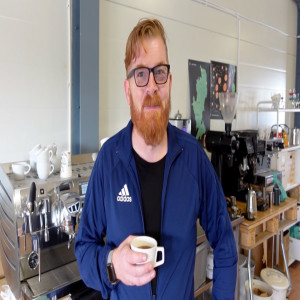
Saturday Sep 19, 2020
Episode 619: Ethiopia Ana Sora Natural
Saturday Sep 19, 2020
Saturday Sep 19, 2020
Ana Sora is a private farm owned by second-generation coffee farmer Israel Degfa. He grew up immersed in various aspects of the coffee industry as his father was a mill manager and his mum sold coffee in the local bus station to commuters. The estate is located in the Guji Zone, due East of Yirgacheffe. It’s western neighbour is Uraga and to the East is Adola - both places where Israel owns mills as well.
As coffee farms go, it's a very new farm: it was only formed in 2013. It's located at a whopping altitude of between 1,900 and 2,350 metres above sea level. It's a gorgeous but somewhat tiring walk to get there! (It's not all just holiday snaps, this coffee buying malarkey!)
We're now into our fifth wonderful year of roasting coffee from Ana Sora, and it's as exciting to see it return in 2020 as it was to roast it for the first time back in 2016! This coffee represents lots of time and energy working at the farmer's gate in Ethiopia, and it's one of the most unique coffees I've ever tasted.
My last visit to the farm was in December 2019 and I'm so pleased I was able to potter by and catch up with Israel before all this pandemic hoo-hah kicked off. Stevie Storytime 📕🙌... during my most recent trip we were driving together down a rough road that was part-way through being built when we blew out two tires at the same time. We had been travelling for 12 hours in the car and there wasn't a tyre shop anywhere nearby - so we got stuck in the middle of nowhere in the dark for three hours 😱 Thankfully one of the farm managers kindly drove out to us with a car which we took back to the house, and he slept in our car all night to keep an eye on it until the tyre shop opened. What a top bloke, he was our knight in shining armour!
It is unusual to find private farms of 250 hectares in Ethiopia (the norm being smallholder gardens of less than 2 hectares each) and even more unusual to find them at such high altitudes. Ethiopian coffee farms are high in general compared to other producing countries (mostly between 1700 - 2100 masl) but Ana Sora is on the higher side still, reaching as high as 2350 masl. The altitude helps with the slower maturation of the coffee cherry (owing in part to the generally lower temperatures and cooler nights) and allows more time for the plant to develop, which contributes to the super unique cup profile we see in coffees from Ethiopia.
Coffee growing is popular locally, and Israel also sources coffee from the surrounding area. Each washing station has around 1000-2000 members, each with one of the small home coffee plots typical of Ethiopia producing very small quantities. The area is populated by smallholder farmers who speak Oromife and are of Oromo ethnicity. Israel believes in helping these farmers through education in husbandry, and also through financial assistance.
Situated alongside the river Turo, the farm used to only produce naturally processed coffee. However, in 2018 the farmers decided to take advantage of the water source and built a washing station capable of producing washed coffee too.
Cherries are hand-sorted for unripes and overripes before they go into floatation tanks, where they're covered with water. Any cherries that float are removed. Whole, ripe cherries are then dried in the sunshine on raised African drying beds, which are laid out on hessian cloths for about 15–18 days depending on the weather conditions. The cherries are covered with plastic or shade nets during the midday heat and at night.
It's a unique coffee from a unique relationship, and I'm massively excited to share this coffee with you once again.
This is a super elegant natural processed coffee. I get a big hit of Parma Violets, rolling in to hibiscus. There’s a sweetness backing it up which reminds me of peach tea, then on that aftertaste, you get a fresh blueberry.
- Country: Ethiopia
- Area: Guji zone
- Nearest town: Yirgacheffe
- Farm: Ana Sora
- Varietal: Indigenous wild varietals
- Processing: Natural
- Owner: Israel Degfa
- Founding year: 2013
- Altitude: 1,900–2,350 m.a.s.l.
- Farm size: 250 hectares
- Coffee growing area: 150 hectares
CUPPING NOTES
Parma Violets, peach tea, hibiscus, blueberry
Clean cup: (1–8): 6.5
Sweetness: (1–8): 7
Acidity: (1–8): 6.5
Mouthfeel: (1–8): 6
Flavour: (1–8): 8
Aftertaste: (1–8): 6
Balance: (1–8): 6
Overall: (1–8): 7
Correction: (+36): +36
Total: (max. 100): 89
Roasting Information
Medium – run it nicely through first crack and get the development you need, but don't push it too far or you'll lose the fruit and floral character.

Saturday Sep 12, 2020
Episode 618: Nicaragua La Escondida Washed Red Catuai
Saturday Sep 12, 2020
Saturday Sep 12, 2020
Finca La Escondida is close to Lake Apanas near the city of Jinotega, which is the capital of the department of Jinotega in the north-central region of Nicaragua.
The straight translation from Spanish to English of 'escondida' is ‘hidden’. The farm is called 'Escondida' because it's 'hidden' from the road by forest and trees, which makes it appear to blend right into the side of the mountain.
In the grand scheme of coffee farm things, La Escondida is still a rather young farm. The first trees were planted there in 2006; just fourteen years ago. La Escondida was planned around identifying the plots with individually different micro-environments resulting from factors such as soil quality, sun exposure and temperature range. This is one of the upsides of planting a new farm: getting to plan ahead!
The varietal of this lot is Red Catuai. The owners selected it for the farm because they thought it would do well with the soil quality, sun exposure, temperature range and weather conditions, given the farm's quite exposed on the side of the mountain.
Catuai is related to Yellow Caturra and Mundo Novo, and it's a hybrid that grows best above 800 metres. It is most prevalent in Brazil and Central/South America. This is a dwarf variety of plant; it doesn't grow very high, and this is its most obvious distinguishing trait. Selected by the Instituto Agronomico in the 1950s, it now accounts for 50% of the coffee acreage in Brazil and is widely used in Central America. It also benefits from the fruit not falling off the branch easily. This helps when there are strong winds or rain, or where windbreaker coverage is at a minimum – like it is at this farm.
Expect a big, chewy body to this coffee - think toffee with bits of walnut mixed in. On the aftertaste is a little hit of dark chocolate.
- Country: Nicaragua
- Department: Jinotega
- Farm: La Escondida
- Farm manager: Boanerje Martinez Montenegro
- Coffee growing area: 92 manzanas
- Altitude: 975–1,230 m.a.s.l.
- Varietal: Red Catuai
- Processing method: Washed
CUPPING NOTES
Toffee, walnut, dark chocolate
Clean cup: (1–8): 6
Sweetness: (1–8): 6.5
Acidity: (1–8): 6
Mouthfeel: (1–8): 7
Flavour: (1–8): 6.5
Aftertaste: (1–8): 6
Balance: (1–8): 6.5
Overall: (1–8): 6.5
Correction: (+36): +36
Total: (max. 100): 87
Roast Information
Medium-dark – through first and keep it steadily progressing through the gap, looking for the first pops of second as it cools - no more.
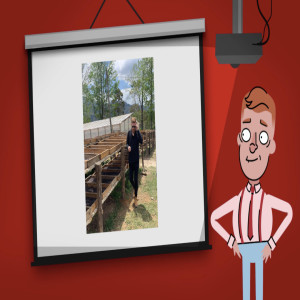
Saturday Sep 05, 2020
Episode 617: Honduras Finca Cerro Azul Washed Catuai
Saturday Sep 05, 2020
Saturday Sep 05, 2020
Cerro Azul is one of the Mierisch family’s newer coffee projects in Honduras. The name 'Mierisch' might sound familiar; they have brought us Limoncillo, Escondida, San Jose and Mama Mina, to name just a few of their amazing farms.
The Mierisch family have been growing coffee for four generations, going on five, in Nicaragua. They have achieved great results with their special way of farming, and more importantly by reaching out to specialty buyers and being at the forefront of coffee development.
This farm started life as an experiment for the Mierisch family. To farm here, they went across the border of their mother country and drove six hours from their home to neighbouring Honduras.
I've spoken with Erwin a lot about why the family made this decision, and it came down to his experiences as one of the Head Judges for the Cup of Excellence competitions in Honduras. He had seen amazing potential, but he'd also seen a lack of care and attention to detail during the processing stage. This detail is vital to truly special coffee, and Erwin and his family are some of the best-qualified processing technicians I have ever met. This opportunity was a match made in heaven.
In 2011 they started the project of revitalising Finca Cerro Azul in the region of the national park, Azul Meambar. It's in Siguatepeque, Comayagua, Honduras, and is across from Finca El Cielito, Santa Barbara. The farm lies on the other side of Lake Yojoa, and is blessed with micro-climates and conditions that are familiar to the family because those conditions are similar to the ones they experience on their lands in Nicaragua.
But the soil is something else, as is the plant stock they have inherited. We were some of the first to taste the fruits of their hard work and long drives to their new farm.
You'll get a refreshing white grape at the start of this, but it's quickly backed up by milk chocolate. On the finish I get pear, for a well-balanced cup which is easy drinking.
- Country: Honduras
- Department: Comayagua
- Municipality: Siguatepeque
- Community: Rio Bonito
- Farm: Finca Cerro Azul
- Farm managers: Francisco Escobar and Lidia Zeledon
- Farm owners: The Mierisch family
- Area: 135 hectares
- Elevation: 1,450–1,900 m.a.s.l.
- Diurnal temperature cycle: average high: 26 C, average low: 16 C
- Varietal: Catuai
- Shade: Inga and Liquidambar
- Processing method: Washed
CUPPING NOTES
White grape, milk chocolate, pear
Clean cup: (1–8): 6.5
Sweetness: (1–8): 6
Acidity: (1–8): 6
Mouthfeel: (1–8): 6
Flavour: (1–8): 7
Aftertaste: (1–8): 6
Balance: (1–8): 7
Overall: (1–8): 6.5
Correction:(+36): +36
Total (max. 100): 87
Roast Information
Medium-dark – take it through first and give it a little time to develop in the gap, dropping just as it hits second.

Saturday Aug 29, 2020
Episode 616: Guatemala El Limon Natural Caturra
Saturday Aug 29, 2020
Saturday Aug 29, 2020
A desire to experiment is one of the big reasons that I love buying from Finca El Limon; we have been getting coffee from them since we were introduced by our mutual friend Raul Rodas (2012 World Barista Champion) seven years ago, and they're still impressing me!
The experimentation is thanks to the motivation of Guadalupe Alberto Reyes (known as Beto to his friends), He's been the owner of the farm for 21 years now, and in recent years he has really focussed on the farm and on continually striving to improve. He aims to take more care in every step they take on the farm, from picking, to processing, to shipping. They also take care with the agronomy of the farm; Beto's son, Saul, has been studying agronomy at the local college for the past seven years, and he uses his knowledge to benefit practices on the farm.
All the family have a part to play in the day-to-day farm running, including Beto's wife Maralyn; their children Saul, Elena, and Betio; Betio's wife Mafer; and Beto's brother Felix, who runs their mill. In addition to the family, they employ a team of seven workers outside of harvest. That team manages the weeding, mill upgrades and general farm work.
The farm itself is eighteen hectares in size and sits at an altitude between 1600–1800 metres above sea level. The farm mainly produces Caturra and Bourbon, with a smattering of Pacamara, San Ramon, and Pache alongside.
It is located roughly an hour's drive to the east of Guatemala City in the small town of Palencia, which Beto also happens to be Mayor of! He has helped to build and develop the town alongside running his farm – I honestly don't know how he finds enough hours in the day, what a guy!
Palencia is not part of the eight regions of coffee as defined by Anacafé (the National Association of Coffee in Guatemala), but you can see a lot of development in the zone, and this farm is a perfect example of that development. I like being in places that are working to be hot and up-and-coming, as well as those that are established players. Over time El Limon has become one of our favourite Hasrelationships, and back in 2013, they were the first producers that we ever bought from directly in Guatemala.
The dedication and care devoted to each step of production is reflected in the fact that the family operate their own wet mill, so that they can separate different lots and have control over the quality of the coffee. They are able to process many lots simultaneously and keep separate days' pickings, processes, and varietals in their own parcels. The wet mill also benefits the local community as neighbours within the region of Palencia also bring their coffees to the mill to be processed.
They have had the mill on-site since the very beginning but it's very much an ongoing project and they recently invested in a rebuild, alongside the construction of a QC laboratory, a new warehouse, and accommodation for their staff. Beto doesn't want to stand still and is continuing to invest in the farm. You can tell that this is a farm on top of their game. Whenever I visit, my questions are dispatched with exactly the right answer and every suggestion is listened to and taken on board.
As well as being skilled professionals, Beto and his family have always been the perfect hosts whenever I visit the farm. They are such welcoming people and take great pride in showing me around their farm. One of the kindest things they've done for me is to welcome me into their home when I am visiting, and they always prepare the most amazing meals! Every time I'm round they cook a dish called Kak'ik (basically translates to 'red and spicy' from Mayan). It's like a broth with a whole turkey leg in it, and it's BOSTIN! It is indeed very red, but it’s not terribly spicy unless you want it to be, and it's arguably the national dish of Guatemala, with versions of it having been made since long before the Spaniards showed up.
When you travel as much as I do, mid-trip you find yourself longing for something big, home-cooked, and not from a restaurant or roadside pop-up cafe. Traditional Guatemalan meals are just the ticket, and I always look forward to the food – but mainly I look forward to the company.
The natural processing brings loads of sweet fruit flavours to this cup. There's soft figs, bruised plums and sultana. There's a brandy edge to that, but it finishes sweet again with brown sugar.
- Country: Guatemala
- Region: Palencia
- Farm: El Limon
- Producer: Guadalupe Alberto 'Beto' Reyes
- Altitude: 1,600 m.a.s.l.
- Varietal: Caturra
- Processing method: Natural
CUPPING NOTES
Fig, bruised plum, sultana, brandy, brown sugar
Clean cup: (1–8): 6
Sweetness: (1–8): 6.5
Acidity: (1–8): 6
Mouthfeel: (1–8): 6.5
Flavour: (1–8): 7
Aftertaste: (1–8): 6
Balance: (1–8): 6.5
Overall: (1–8): 6.5
Correction: (+36): +36
Total: (max. 100): 87
Roasting Information
Medium-dark – through first, don't let it run away but keep the temperature going up steadily, and drop with those first pops of second in the cooling tray.

Saturday Aug 22, 2020
Episode 615: Nicaragua Finca Limoncillo Washed Red Pacamara Peaberry
Saturday Aug 22, 2020
Saturday Aug 22, 2020
The story of Hasbean and Finca Limoncillo is a long and exciting one - we've been working together for 13 years now! A bakers' dozen of coffee harvests shared between Matagalpa and Stafford make us very happy customers. I've been telling the story of this relationship for many years now and I don't intend to stop any time soon because it's such a big, big, big relationship for me 🌟 So much of where we are today has come from this relationship. I'm really proud of everything that's happened in the past, and super excited for where we can go in the future.
Limoncillo (and a handful of other fantastic farms) are owned by Dr. Erwin Mierich. Having previously lived and worked in the USA, he returned to Nicaragua in the mid-1990s. He explained, "While I was living in the United States, I worked as a gynaecologist, but then I had to come back to Nicaragua and lead this farm. Coffee has been my passion since I was a little boy". In the years we have worked together Erwin has visited Stafford many times, and it's always a pleasure to have him around. Last time he was visiting we ended up at a Weird Beard tap takeover in Manchester, talking to two Weird Beards about crazy brewing/coffee farming ideas! A coffee from Finca Limoncillo (the 'Funky Red Pacamara') is used in two of Weird Beard's beers: Black Perle and Double Perle, both of which are mighty delicious beers! A fitting collaboration to evolve from our continued business dealings when you consider how much time the family have dedicated to showing me how Latin American people like to party! On my very first visit to Nicaragua, the two people who showed me around were Erwin Jr and Steve Mierisch, the sons of the farmer. It was really cool, lifelong friends were made, and they taught me a lot about coffee production in the region.
Our relationship with Finca Limoncillo began in 2007, and back then we were buying their delicious coffee as part of a buying group. I cupped the coffee and instantly loved it - I knew I had to have it. It was a wonderful surprise to discover after the auction closed that it was owned by a family in Nicaragua who were already good friends of mine, and indeed probably the only people I knew from the whole country! The following year I visited the farm with our Nicaraguan importers and through my phenomenal Steve Pester Powers I got them to agree to bring the coffee into the UK for us (probably just to stop the flow of emails and phone calls from that annoying ginger bloke!)
A few years ago we were notified by the importers that they would not be buying the coffee again (for reasons other than the cup quality) which led to some frantic phone calls on my part, and a dig down the back of the sofa for enough loose change to fund buying 12 months' worth of coffee all in one go. There were many, many obstacles in the way of doing this deal, but we were lucky in that we were able to pull everything together in a very short amount of time. The upside of all of this is that we now work directly with Finca Limoncillo instead of going via anyone else. This coffee has gone from a one-off Cup of Excellence buy to a fantastic long-term relationship that I'm so very proud to have.
Finca Limoncillo is located in the Matagalpa region of Nicaragua and it's a whopping 171 hectares in size, which is heckin chonky! 109 hectares of this is used for coffee cultivation, with the remainder used to raise cattle and horses, and left to natural woodland. The family have heaps of policies and initiatives to make everything as sustainable as possible on this vast farming area: their use of chemicals is minimal, and the impact on the environment is always minimised by careful and considerate land management.
It's owned and run by the Mierisch family who are, by now, very close friends, and well-respected producers in Nicaragua. They're known for their experimental processing, varietal work, and exceptional coffee. The family employ over 3000 staff during the harvest, and at Limoncillo over 60 families live on the farm full time. They are seriously loved by the guys who work for them, more than any other producer we buy from there is genuine love and respect between the family and their workers. The fact that the family are our friends helps us drill down into the details of what they do for the people who work for them. This information continues to prove to me that good people grow good coffee. My last visit was February this year (right before the world went into lockdown!) and it was truly memorable - myself and Joanna (of Drop Coffee fame) sat up with Eleane until 2 am chatting and drinking rum together... the farm visit the next morning was a very quiet one! Luckily Limoncillo is a beautiful location, it boasts nine waterfalls within the farm, which is exactly the sort of place you want to be when you've had too much fun with friends the night before.
On the farm, the family:
- The employers pay their staff 30% more than what is typical minimum wage, as well as:
- Provide free housing for 60 families on their farms
- Provide free electricity and running water for their homes
- Provide free food for all workers
- Have free daycare facilities for families to use
- Provide free health care facilities on the farms
- Employee on-site teachers who educate their staff and teach other skills such as pottery and weaving. The goal is to help staff diversify their skills. The teachers are also paid twice the wages they would receive in the cities.
This year we have purchased 9 phenomenal lots from Limoncillo (that meanie Roland wouldn’t let me buy as many as I wanted to!), which makes up a total of 21 from the Mierisch family's farms combined - 19 Nicaraguan and 2 Honduran. This particular lot is a Pacamara Peaberry.
As well as being a big ol' Pacamara, this is also a lil' ol' Peaberry; a thing that's normally big is a little smaller than you might expect. It's an interesting mix of unusual sizing that I hope you'll enjoy.
Normally the seed of the coffee fruit grows into the green bean that we all know and love from two fertilised seeds inside each fruit, but sometimes things are a little different and a Peaberry is born. When only one of the two seeds is fertilised, it produces a smaller bean that looks like a shrunken version of what we'd normally know as a coffee bean, and that's because only one seed has grown instead of two.
Some say Peaberry coffees are sweeter and more delicious than their regular cousins; some people even come to us specifically looking for these coffees because they crave them so much! I'll let you be the judge.
I get a big, big hit of juicy sultanas here with a tropical edge of pineapple to it. As it cools it becomes really creamy, but with a biscuity edge too which makes me think of a slice of cheesecake. On the finish is the perfect finishing touch to that - a sliver of dark chocolate.
- Country: Nicaragua
- Municipality: Yasica Norte
- Region: Matagalpa
- Farm name: Limoncillo
- Producers: The Mierisch family
- Farm size: 171 hectares
- Coffee growing area: 109 hectares
- Altitude: 1,200 m.a.s.l.
- Varietal: Red Pacamara Peaberry
- Processing method: Washed
CUPPING NOTES
Sultana, cheesecake, dark chocolate
Clean cup: (1–8): 6.5
Sweetness: (1–8): 6.5
Acidity: (1–8): 6
Mouthfeel: (1–8): 6.5
Flavour: (1–8): 8
Aftertaste: (1–8): 6
Balance: (1–8): 6
Overall: (1–8): 7
Correction: (+36): +36
Total: (max. 100): 88.5
Roast Information
Medium-to-medium-dark – Keep the pace pretty steady, nothing too slow or too quick. When you get to crack, let it slow a little to help with development, but don't overdo it. Then you're looking for the very first pops of second on the drop, no more.
Brewing Tip
Pacamaras have a very unique size, density and structure, so don't expect them to grind like any other coffee. As this is a Pacamara Peaberry, it's also different to a normal Pacamara #tricky
I find going a little finer than I normally would and allowing more time for the grinder to get its teeth into the bigger beans often lead to delicious results. Don't push the grind quite as far as you would for a regular Pacamara, but still make sure to tweak what you're doing to help this coffee show off its natural awesomeness.

Saturday Aug 15, 2020
Episode 614: Costa Rica ARBAR La Isla Red Honey Villa Sarchi
Saturday Aug 15, 2020
Saturday Aug 15, 2020
We've been working with Carlos and his family since way back in 2013 and this is a cracking example of the sort of long-term relationship that we are proud of developing with our producing partners. If you read through our Coffee Archive (and my rather excellent book Coffeeography) you can see just how far we've come together since our initial meeting - back when I first bought from his group of farms they didn't even have an official name! All I knew was that it was grown by a nice chap called Carlos Arietta and it was really, really delicious. In the years since that initial purchase we've learned so much, so now we're able to share all the fun deets with you folks!
The name of their mill ARBAR comes from the combined family names: Carlos ARietta + Maria BARboza = ARBAR. Their children are Yessica, Karen, Esteban & Jose Ignacio. They run everything together, the micromill and 4 small farms, with 1 permanent worker and a few temporary staff during harvest season. This might sound like an awful lot of work to be shared between such a select team but Costa Rican farms tend to be on the smaller side compared to other producing countries. The four farms in the group are: La Casa, El Manatial, El Oasis, and La Isla. This year we have been fortunate enough to purchase coffee from all of the above.
Carlos has been growing coffee for about 40 years (La Casa being his oldest farm) with El Manatial and El Oasis coming next around 20 years later, followed by La Isla which is the latest project and still very early in it's production life. He only started processing his coffee himself at their mill from 2014 (while still paying someone else to pulp it for him... more on that in a mo) which meant he hadn't been able to present his coffee to a single buyer previously, this was fortuitous for us as this was how we happened to meet - via our mutual exporter in Costa Rica!
All of their farms are located in the Western Valley region near to the town of Lourdes de Naranjo. Carlos is very active in the local community and they have close relationships with their neighbours - which includes CoE winning producers like Herbazu, Vista Al Valle and Sumava. They operate mostly Organic processes, but aren’t Organic certified. They believe in the value of biodiversity on the farms and plants like fruit trees are positioned amid the coffee plants for shade and to help the soil - as well as providing food for the family. Activity from the Poas volcano at the start of 2019 has impacted a good deal of the Western Valley region, really quite badly in some areas, however ARBAR have been incredibly lucky to not be affected by this and have produced a good crop
This coffee hails from Finca La Isla, which is located at 1400 metres above sea level. The farm is roughly 1.4 hectares in size and is planted with a mixture of Villa Sarchi, Kenya, Geisha, and Ethiopia. Overall this area produces about 3500kg of coffee cherries, which translates to around 700kg of green coffee once processed or ~570kg of roasted coffee once your friendly neighbourhood Roasterman gets their mitts on it! This is their latest project and actually belongs to Maria’s niece. Carlos and Maria have agreed an arrangement with her where they will plant and farm the plot and share the profits with her, but it's only just starting to see production in the last couple of years.
Both myself and Roland (Head Roaster / Production Manager / Daft Fact Provider) have been lucky enough to visit Carlos and his family multiple times over the years that we've been working together and they are always guaranteed to be wonderful hosts. I'm not entirely sure I should even be paying Roland to travel to Costa Rica and go hang out with them... does it still count as work when he enjoys it so much? Our last visit was in 2019 and I tried to teach Carlos about Sunderland and how to shout “Ha’way the lads” (https://www.safc.com/news/club-news/2018/october/haway-the-lads) and promised to take him to a game if he ever visits the UK - according to Roland this might put Carlos off ever visiting the UK but I disagree!
This coffee has been processed at the ARBAR micromill using the Red Honey process. Honey processing is somewhat similar to a Pulped Natural (but uses less water), falling somewhere in between a Washed and a Natural coffee both in terms of contact between the cherry mucilage and the bean during drying time and in the resulting flavour profile. The outer skin and fruit pulp is removed from the seed (bean) of the coffee inside, and it's left to dry. The colour in the name refers to the amount of sticky fruit that's left on the surface of the seed after depulping - darker indicates more / lighter indicates less. This method can present some risk of over fermentation during processing but water is a precious commodity in this area of Costa Rica, so this method suits the location very well. Carlos definitely has the skills to pay the bills though so no worries about mucking up the Honeys at ARBAR!
Processing technique and equipment is one way that our long term relationship has benefitted us as buyers as well as Carlos and his family. Back when we first met, Carlos was taking his cherry to a local Co-op to use their depulper and then back to the house to process - this was obviously a lot of extra effort and meant that he couldn't have as much control over the details as he would have liked. That's where we joined the fun! In 2014 after chats with the family I stumped up the funds for their very own depulper - which was paid back by you lovely lot through a special price per bag on that year's coffee from ARBAR. (http://www.hasblog.co.uk/carlos-gets-a-new-depulper-thanks-to-you) Since then the mill has constantly been updated with additions and changes as they learn how to pulp better every season. The techniques and the skills they are developing are improving their coffee year on year, and it was already a dream when I first encountered it on that fateful cupping table in 2013, so that's really saying something.
There's a delicate orange at the start, but it moves quickly into a sweetness of digestive biscuit and caramel. On the finish it's cocoa powder, for a clean & well balanced easy drinker..
- Country: Costa Rica
- Region: Western Valley
- Town: Lourdes de Naranjo
- Farm: La Isla
- Farmer: Carlos Arrieta
- Micro mill: ARBAR
- Altitude: 1,400 m.a.s.l.
- Varietals: Villa Sarchi
- Processing system: Red Honey
CUPPING NOTES
Orange, digestive biscuit, cocoa powder.
Clean cup: (1–8): 6
Sweetness: (1–8): 6
Acidity: (1–8): 6.5
Mouthfeel: (1–8): 6
Flavour: (1–8): 6.5
Aftertaste: (1–8): 6
Balance: (1–8): 6.5
Overall: (1–8): 6.5
Correction: (+36): +36
Total: (max. 100): 86
Roasting Information
Medium - give it some time to develop, dropping it at the end of the gap, just before 2nd gets going.

Saturday Aug 08, 2020
Episode 613: Guatemala El Limon Washed Caturra
Saturday Aug 08, 2020
Saturday Aug 08, 2020
A desire to experiment is one of the big reasons that I love buying from Finca El Limon; we have been getting coffee from them since we were introduced by our mutual friend Raul Rodas (2012 World Barista Champion) seven years ago, and they're still impressing me!
The experimentation is thanks to the motivation of Guadalupe Alberto Reyes (known as Beto to his friends), He's been the owner of the farm for 21 years now, and in recent years he has really focussed on the farm and on continually striving to improve. He aims to take more care in every step they take on the farm, from picking, to processing, to shipping. They also take care with the agronomy of the farm; Beto's son, Saul, has been studying agronomy at the local college for the past seven years, and he uses his knowledge to benefit practices on the farm.
All the family have a part to play in the day-to-day farm running, including Beto's wife Maralyn; their children Saul, Elena, and Betio; Betio's wife Mafer; and Beto's brother Felix, who runs their mill. In addition to the family, they employ a team of seven workers outside of harvest. That team manages the weeding, mill upgrades and general farm work.
The farm itself is eighteen hectares in size and sits at an altitude between 1600–1800 metres above sea level. The farm mainly produces Caturra and Bourbon, with a smattering of Pacamara, San Ramon, and Pache alongside.
It is located roughly an hour's drive to the east of Guatemala City in the small town of Palencia, which Beto also happens to be Mayor of! He has helped to build and develop the town alongside running his farm – I honestly don't know how he finds enough hours in the day, what a guy!
Palencia is not part of the eight regions of coffee as defined by Anacafé (the National Association of Coffee in Guatemala), but you can see a lot of development in the zone, and this farm is a perfect example of that development. I like being in places that are working to be hot and up-and-coming, as well as those that are established players. Over time El Limon has become one of our favourite Hasrelationships, and back in 2013, they were the first producers that we ever bought from directly in Guatemala.
The dedication and care devoted to each step of production is reflected in the fact that the family operate their own wet mill, so that they can separate different lots and have control over the quality of the coffee. They are able to process many lots simultaneously and keep separate days' pickings, processes, and varietals in their own parcels. The wet mill also benefits the local community as neighbours within the region of Palencia also bring their coffees to the mill to be processed.
They have had the mill on-site since the very beginning but it's very much an ongoing project and they recently invested in a rebuild, alongside the construction of a QC laboratory, a new warehouse, and accommodation for their staff. Beto doesn't want to stand still and is continuing to invest in the farm. You can tell that this is a farm on top of their game. Whenever I visit, my questions are dispatched with exactly the right answer and every suggestion is listened to and taken on board.
As well as being skilled professionals, Beto and his family have always been the perfect hosts whenever I visit the farm. They are such welcoming people and take great pride in showing me around their farm. One of the kindest things they've done for me is to welcome me into their home when I am visiting, and they always prepare the most amazing meals! Every time I'm round they cook a dish called Kak'ik (basically translates to 'red and spicy' from Mayan). It's like a broth with a whole turkey leg in it, and it's BOSTIN! It is indeed very red, but it’s not terribly spicy unless you want it to be, and it's arguably the national dish of Guatemala, with versions of it having been made since long before the Spaniards showed up.
When you travel as much as I do, mid-trip you find yourself longing for something big, home-cooked, and not from a restaurant or roadside pop-up cafe. Traditional Guatemalan meals are just the ticket, and I always look forward to the food – but mainly I look forward to the company.
This is a classic easy drinker – it's all sweet malted milk biscuit covered in milk chocolate (some may say a moo cow biscuit!). As it cools, that milk chocolate becomes chocolate orange, with just a little red apple appearing on the aftertaste.
- Country: Guatemala
- Region: Palencia
- Farm: El Limon
- Farmer: Guadalupe Alberto 'Beto' Reyes
- Altitude: 1,600 m.a.s.l.
- Varietal: Caturra
- Processing method: Washed
CUPPING NOTES
Malted milk biscuit, milk chocolate, orange, red apple
Clean cup: (1–8): 6
Sweetness: (1–8): 6.5
Acidity: (1–8): 6
Mouthfeel: (1–8): 6
Flavour: (1–8): 6.5
Aftertaste: (1–8): 6
Balance: (1–8): 6.5
Overall: (1–8): 6.5
Correction: (+36): +36
Total: (max. 100): 86
Roast Information
Medium-dark – keep this pretty balanced in its profile. Go through first, push it through the gap until you get to the cusp of second, and drop.
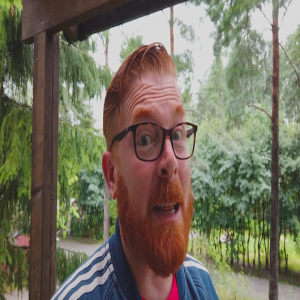
Saturday Aug 01, 2020
Episode 612: Tanzania Burka Estate Natural
Saturday Aug 01, 2020
Saturday Aug 01, 2020
The Burka Coffee Estate is located on the outskirts of Arusha National Park, on the leeward side of Mount Meru and was founded in 1899 by German settlers just outside the town of Arusha in northern Tanzania. It's 80 kilometres west of Mount Kilimanjaro, Africa’s highest peak. Situated close to the Kenyan border, this north-westerly region of Tanzania is famous for the coffee it produces.
The neighbouring Selian Estate was established in 1910, and it was acquired by Burka in 1991. The first coffee trees were planted in 1918, and they now number some 1.3 million trees. They're mostly shade-grown varietals. Three hundred and fourteen acres are reserved for forests. A further 250 acres are reserved as natural grasslands.
There are around 200 permanent staff at Burka, a further 200 casual daily staff, and up to 5,000 temporary staff involved in picking and sorting at the height of harvest season. All permanent staff are provided with housing on the estates, and their salary is set at least 20% above minimum government requirements.
Staff have social security and labour union membership included in their contracts, and an estate credit union also offer loans and advice for education, health, and house construction. Each estate has its own nursery, each of which educates over 100 children, and two primary schools also cater for over 600 children from the estate workers' families and neighbouring communities. An on-site health centre with estate nurse and dispensary is available for all staff, and the estate has its own ambulance. It also has shops, sports facilities, churches, and a mosque.
Regular inter-estate and inter-camp football and netball matches occur, along with staff BBQs and other holiday celebrations. Workers are supplied with free firewood from stumped coffee trees, and fruit and nut trees are grown around the staff villages.
The staff at Burka have a combined wealth of agronomic experience, and over the course of many decades the estates have built a reputation for consistent production of fine Arabica coffees characterised by mild acidity with flavours of lemon, chocolate, and caramel.
Harvesting is carried out between the months of May and October. It's done by selective hand-picking of red ripe cherries, which is followed by further hand-sorting to remove any over- or under-ripe cherries. Cherries are then dried slowly on raised African beds for 12–14 days. The cherries are carefully maintained through consistent turning to ensure even drying and to avoid over-fermentation. They are covered at night to protect them from excess rain and moisture. Once the cherries have dried to the optimum moisture content, they are sent to Moshi for hulling, grading by bean size, and careful handpicking. They're then bagged in GrainPro for export from the port in the capital city, Dar Es Salaam.
This is a big, sticky coffee which reminds me of dark toffee. It's a little bit of a dried fruit edge, like raisins soaked in brandy, but it's that gloopy dark toffee which sticks for me.
- Country: Tanzania
- Region: Arusha
- District: Arumeru
- Estate: Burka
- Estate size: 343 hectares
- Varietals: Kent, N39, Blue Mountain and Catimor
- Processing method: Natural
- Drying method: Raised African beds
- Drying time: 12–14 days
- Altitude: 1,350 m.a.s.l.
- Soil: Young alluvial, sandy to clay loam
- Average annual rainfall: 750 mm
CUPPING NOTES
Dark toffee, raisin, brandy
Clean cup: (1–8): 6
Sweetness: (1–8): 6.5
Acidity: (1–8): 6
Mouthfeel: (1–8): 7
Flavour: (1–8): 6.5
Aftertaste: (1–8): 6
Balance: (1–8): 6
Overall: (1–8): 6.5
Correction: (+36): +36
Total: (max. 100): 86.5
Roast Information
Dark - this coffee goes quite hot and lacks clarity if underdeveloped, so mark sure it's pushed right through the gap and up to second crack before it's dropped.
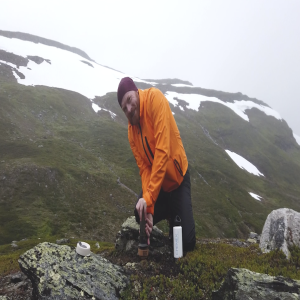
Saturday Jul 25, 2020
Episode 611: Ethiopia Ayehu Natural
Saturday Jul 25, 2020
Saturday Jul 25, 2020
We've seen some excitingly varied coffees from Ethiopia, but as varied as they are they've often come from a pretty small region - Yirgacheffe and Sidamo in the south. The coffees produced there are fantastic and one of the three major growing areas (along with Harrar in the East and Ghimbi in the West), but we were really excited to try this coffee, grown in the Amhara region in northern Ethiopia.
It's not actually the first time we've had a coffee from this region - for those of you with a long memory, we had the Lake Tana Natural way back in 2009! However, we haven't seen anything really from the region since, so we're excited to share this one with you.
Ayehu Farm is a 500-hectare single estate situated at 1,750masl. It's located in the Western Gojjam area, whose northern border is Lake Tana (map)
It's also an unusual varietal for Ethiopia - K7. This is a varietal we normally see planted on farms in Tanzania or Kenya (Kiriga Estate has a little bit of K7). It was originally released in Kenya in 1936 after being picked out from the famous French Mission selective program at Scott Labs. Find out more information about K7 at WorldCoffeeResearch.org here.
This coffee was dried slowly in the sun on raised African beds for 18 days, turned periodically to ensure even drying and prevent over-fermentation.
In the cup I get a really sweet green mango, with an edge of dark chocolate to it. As it cools a little, you get lemon rind joining it on the finish, along with a treacle flavour that carries on to the aftertaste.
- Country: Ethiopia
- Region: Amhara, Western Gojam
- Farm: Ayehu
- Farm size: 500-hectares
- Varietal: K1
- Drying method: Raised African beds
- Drying time: 18-days
- Processing method: Natural
- Altitude: 1,750 m.a.s.l.
- Soil: Sandy loam to clay loam
CUPPING NOTES
Green mango, dark chocolate, lemon rind, treacle
Clean cup: (1–8): 6
Sweetness: (1–8): 6.5
Acidity: (1–8): 6.5
Mouthfeel: (1–8): 6
Flavour: (1–8): 7
Aftertaste: (1–8): 6.5
Balance: (1–8): 6
Overall: (1–8): 6.5
Correction:(+36): +36
Total (max. 100): 87
Roast Information
Medium-dark - this roasts more like a Tanzanian or Burundi Natural than an Ethiopian, so you may need to take it quite hot to get it to the edge of second gap where the flavours will really sing.
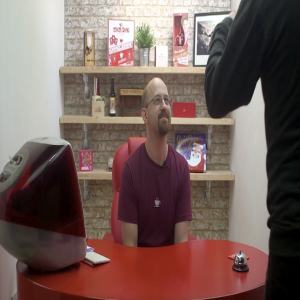
Saturday Jul 18, 2020
Episode 610: Costa Rica Don Joel Finca Carmela Red Honey Villa Sarchi
Saturday Jul 18, 2020
Saturday Jul 18, 2020
This is our fifth year buying from the folks at Finca Carmela. The 3-hectare farm is owned by Allan Oviedo Rodriguez and his family, along with the neighbouring Finca La Cumbre, and the Don Joel micromill which services the processing needs of both farms (along with occasional small lots for their neighbours when there's space as they've got a good reputation for it).
Finca Carmela is located right on the border between the Central and Western Valleys, in the Alajuela province of Costa Rica. Situated around 1600 metres above sea level, the farm is just a short 5 minute drive away from their first farm La Cumbre on the other side of the hill.
Allan has been producing coffee in the area for 18 years; he grew up in a coffee family and learnt the traditional producing methods alongside his father (Don Joel) and brothers. It was during these early years that he saw the difficulties that came with making a living as a coffee farmer, such as poor returns for what is a very demanding job, and the ever-increasing cost of living.
When Allan inherited his first farm La Cumbre (the larger family farm was divided between him and his brothers when Don Joel passed away) he decided to implement changes to improve their lot. During his early years of owning the farm he used to work as a taxi driver in San Jose by night and managing the farm by day to make ends meet. But owning the farm was his dream and he was ardently focused on giving that security to his family.
With a mix of willingness to try new things, an eye for detail, and the ability to learn quickly, Allan was able to keep improving his farm. A regular visitor to the wet mill where his coffee was being processed, he took a keen interest in how the processes worked and how the best results could be achieved, which lead him to build his own micromill on La Cumbre, naming it after his father. He began to work on replanting the land with a focus on high-quality cup profile. The varietals he chose to work with were Caturra, Catuai, and Villa Sarchi.
Finca Carmela followed when Allan was able to invest in expanding his growing area, and here planted mainly Villa Sarchi and Typica, which he's now been tending for 4 years. Allan employs 2 staff outside harvest season, and staffing during the harvest will depend how good the year is - 7 people in a bad year, up to a maximum of 20 in a really good year.
Despite the very short distance between the two farms, they exhibit interestingly different microclimates that impact the way that the coffee thrives. For example, rain may reach one side of the mountain but not the other, strong winds can damage one whilst the other is sheltered. These factors may seem small, but can make a big difference in terms of when the coffee plant goes into flower, how much sun it gets, whether plants get damaged etc and this all adds up.
You can see Poás Volcano from La Cumbre, which makes the farm roughly North-East facing, whereas Carmela is more South-East as you can see back towards San Jose. Think about it like planting up your garden at home - south facing? lots of shade? good drainage? Shelter from wind? all of these things are going to have an effect on what sort of plants are happiest living there, and happy plants are the first step towards tasty coffee!
Like a lot of Costa Rican producers, Allan’s scale is very small. However, he’s got an interest in the wider world and wider coffee market which we’ve only usually seen in producers who are much larger and well-travelled. On his most recent visit, Roland spent the day with him and over a delicious dinner (cooked by his wife) they quizzed him on global coffee trends, new processes and origins, what customers liked and didn’t, British politics, roasting… it was wide-ranging! Roland says "I was there with Davian, who works with our exporters. His English is a bit better than my Spanish, but not by a long way, so I can say it was quite a challenge to explain Brexit! (Thank you Google Translate)."
Of the people we work with, Allan is situated the closest to Poás Volcano - only 7km away. He had worked incredibly hard building up the farm, taking on Carmela and expanding La Cumbre - then it spewed ash over the area in 2019. It really brings home the risks a producer takes when they invest in their farm. In one swoop, all his plants had leaves hidden by ash and all he could do was hope the rains would come quickly to wash it away. This was further impacted by the 2019 El Niño, where warming reinforced the dry season patterns January through April and reduced rainfall during the rainy season in June through December. All this added up to a very difficult period for production in Costa Rica, but we're pleased to hear that things are much more positive this year and Allan has managed to get a great crop from Carmela.
It's milk chocolate and lime all the way here. Super sweet and clean, on the finish there's an unusual delicate hint of mint which I love, before the aftertaste brings sweet caramel and chocolate again.
- Country: Costa Rica
- Region: Western Valley
- Province: Alajuela
- Nearest City: San Luis de Grecia
- Farm: Finca Carmela
- Micromill: Don Joel
- Producer: Allan Oviedo Rodriguez and family
- Altitude: 1,600 m.a.s.l.
- Processing method: Red Honey
- Varietal: Villa Sarchi
CUPPING NOTES
Milk chocolate, lime, mint, caramel
Clean cup: (1–8): 6.5
Sweetness: (1–8): 7
Acidity: (1–8): 6.5
Mouthfeel: (1–8): 6
Flavour: (1–8): 6.5
Aftertaste: (1–8): 6
Balance: (1–8): 6.5
Overall: (1–8): 6.5
Correction:(+36): +36
Total (max. 100): 87.5
Roast Information:
Medium - into the gap at a nice steady pace, but drop it before second gets going.
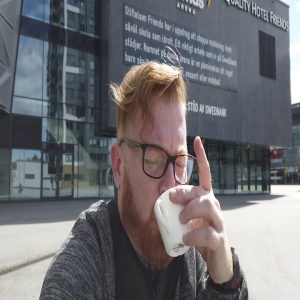
Saturday Jul 11, 2020
Episode 609: Guatemala El Limon Washed San Ramon
Saturday Jul 11, 2020
Saturday Jul 11, 2020
A desire to experiment is one of the big reasons that I love buying from Finca El Limon; we have been getting coffee from them since we were introduced by our mutual friend Raul Rodas (2012 World Barista Champion) 7 years ago, and they're still impressing me! The experimentation is thanks to the motivation of Guadalupe Alberto Reyes (known as Beto to his friends), he's been the owner of the farm for 21 years now and in recent years he has really focussed on the farm and on continually striving to improve. He aims to take more care in every step they take - from picking, to processing, to shipping. Also in the agronomy of the farm, as Beto's son Saul has been studying agronomy at the local college for the past 7 years and using his knowledge to benefit practices on the farm. All the family have a part to play in the day-to-day running, including Beto's wife Maralyn, their children Saul, Elena, and Betio plus his wife Mafer, and Beto's brother Felix who runs their mill. In addition to the family, they employ a team of 7 outside of harvest that manages the weeding, mill upgrades and general farm work.
The farm itself is 18 hectares in size and sits at an altitude between 1600 - 1800 metres above sea level. The farm mainly produces Caturra and Bourbon, with a smattering of Pacamara, San Ramon, and Pache alongside. It is located roughly an hour's drive to the east of Guatemala City in the small town of Palencia, which Beto also happens to be Mayor of! He has helped to build and develop the town alongside running his farm - I honestly don't know how he finds enough hours in the day, what a guy! Palencia is not part of the eight regions of coffee as defined by Anacafé (the National Association of Coffee in Guatemala), but you can see a lot of development in the zone, and this farm is a perfect example of that development. I like being in places that are working to be hot and up-and-coming, as well as those that are established players. Over time El Limon has become one of our favourite Hasrelationships, and back in 2013, they were the first producers that we ever bought from directly in Guatemala.
The dedication and care devoted to each step of production is reflected in the fact that the family operate their own wet mill, so that they can separate different lots and have control over the quality of the coffee. They are able to process many lots simultaneously and keep separate days' pickings, processes, and varietals in their own parcels. The wet mill also benefits the local community as neighbours within the region of Palencia also bring their coffees to the mill to be processed. They have had the mill on-site since the very beginning but it's very much an ongoing project and they recently invested in a rebuild, alongside the construction of a QC laboratory, a new warehouse, and accommodation for their staff. Beto doesn't want to stand still and is continuing to invest in the farm. You can tell that this is a farm on top of their game. Whenever I visit my questions are dispatched with exactly the right answer and every suggestion is listened to and taken on board.
As well as being skilled professionals, Beto and his family have always been the perfect hosts whenever I visit the farm. They are such welcoming people and take great pride in showing me around their farm. One of the kindest things they've done for me is to welcome me into their home when I am visiting, and they always prepare the most amazing meals! Every time I'm round they cook a dish called Kak'ik (basically translates to "red and spicy" from Mayan) - it's like a broth with a whole turkey leg in and it's BOSTIN! It is indeed very red, but it’s not terribly spicy, unless you want it to be, and it's arguably the national dish of Guatemala, with versions of it having been made since long before the Spaniards showed up. When you travel as much as I do, mid-trip you find yourself longing for something big, home-cooked, and not from a restaurant or roadside pop-up cafe. Traditional Guatemalan meals are just the ticket, and I always look forward to the food – but mainly I look forward to the company.
A wonderfully easy-drinking coffee, this reminds me of a chocolate-coated digestive biscuit, with hints of white sugar and caramel in the background. There's just a hint of white grape acidity, balancing out that full, biscuity sweetness.
- Country: Guatemala
- Region: Palencia
- Farm: El Limon
- Farmer: Guadalupe Alberto 'Beto' Reyes
- Altitude: 1,600 m.a.s.l.
- Varietal: San Ramon
- Processing method: Washed
CUPPING NOTES
Milk chocolate, Digestive Biscuit, white grape
Clean cup: (1–8): 6
Sweetness: (1–8): 7
Acidity: (1–8): 6
Mouthfeel: (1–8): 6
Flavour: (1–8): 6.5
Aftertaste: (1–8): 6
Balance: (1–8): 6.5
Overall: (1–8): 6.5
Correction: (+36): +36
Total: (max. 100): 86.5
Roasting Information
Medium-dark - push it through the gap and look for those first pops of second on the drop. It'll take a little extra time in development to build the sweetness, but don't overdo it or you'll lose the nice balance of the cup.
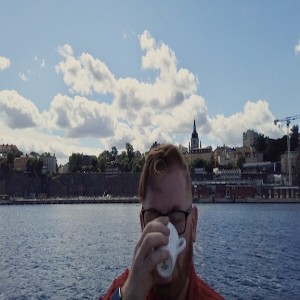
Saturday Jul 04, 2020
Episode 608: Costa Rica Finca Licho Yellow Honey Villa Sarchi
Saturday Jul 04, 2020
Saturday Jul 04, 2020
Here at Hasbean we love to celebrate the awesome things that happen when strong relationships are built between roasters and producers, and Finca Licho is a shining example of that ethos.
We first bought from this farm way back in 2007 when it was awarded 4th place in the Cup of Excellence. Fast forward 13 years (gosh I feel old now) and Licho has become a firm favourite with both customers and our little Hasbean team - the arrival of coffees from Finca Licho is greatly anticipated every year. I really feel that this coffee showcases our development as a roaster over the years as we've moved from buying via an importer to buying directly from the farm ourselves.
5 years ago I visited the farm and made a deal with the brothers for a European exclusive on these coffees, and this year we continue that. You'll not see these coffees anywhere else in Europe - they're so tasty we wanted them all for ourselves! I love the fact that I simply walked onto the farm after cupping a particular lot in the exporter's office, had a chat about how much money they wanted, and then we shook hands. We got back into the 4x4 and drove away with a very happy Steve!
The farm is owned and run by Los Hermanos Aguilera - often translated as "The Aguilera Bros", but everyone is involved, not just the boys! The family of 12 brothers and sisters inherited the business from their parents who started their coffee growing career over 50 years ago. With the help of the third generation, the family work the farm with basically no hired labour except for during the harvest. They manage the mill and drying patios, fertilise, prune the coffee trees etc, all themselves, all year round. The Aguileras have a reputation for their deep understanding of quality at the farm and mill level, and this is why we are excited about working with them.
Situated 1500 metres above sea level in the region of Naranjo, the farm is located in the volcanic Northern Cordiles corridor of the Western Valley, which is an area famous for it's excellent coffee production. The majority of the coffee grown at Finca Licho is the Villa Sarchi variety with a smidge of Caturra too (about 65% and 25% of production respectively) and the remainder is made up of a mixture of more unusual varieties, some of which we've been able to snag this year now that they're established enough to provide a crop.
This coffee is honey processed, which is similar to the pulped natural method. The outer skin and fruit pulp is removed from the seed (bean) of the coffee inside, and it's left to dry. The main difference between this and a pulped natural is that there is less water used when the cherry is removed, so mucilage sticks to the surface of the bean. There are a spectrum of varying honey processes depending on how much of the fruity material is left intact - these range from white honey (least mucilage / closest to a washed coffee) to black honey (most mucilage / closest to a natural coffee). Lighter honeying methods tend to be used on coffee from higher altitudes, and darker honeying for lower altitudes. This is based on the producers' understanding of which crops will benefit most from the different attributes that honey processing brings to the cup, as the sugar content of the fruit alters fermentation and increases the perception of sweetness in the final coffee.
This method can present some risks during processing but water is a precious commodity in this area of Naranjo, so this method suits the location very well. The beans end up clinging together whilst drying because of their sticky layer of mucilage (hence the name "honey" processing) so the coffee needs to be turned regularly to break apart these clusters of beans. Over-fermentation can happen at this stage and you can end up with undesirable flavours developing, but the Aguileras are well-versed in this method and are some of the most skilled in Costa Rica!
Want to know a little more about honey processing? Here's a video you might enjoy!
This starts with fresh raspberry and a sweetness of white sugar. On the aftertaste that sweetness is joined by almond, making me think of frangipane - it's a Bakewell Tart in coffee form!
- Country: Costa Rica
- Region: Western Valley
- Province: Alajuela
- Nearest city: Naranjo de Alajuela
- Farm: Finca Licho
- Producers: Aguilera family
- Farm size: 28.00 hectares
- Coffee growing area: 9.10 hectares
- Altitude: 1,500 m.a.s.l.
- Varietal: Villa Sarchí
- Processing system: Yellow Honey
CUPPING NOTES
Raspberry, frangipane, white sugar.
Clean cup: (1–8): 6
Sweetness: (1–8): 7
Acidity: (1–8): 6.5
Mouthfeel: (1–8): 6
Flavour: (1–8): 7
Aftertaste: (1–8): 6.5
Balance: (1–8): 6
Overall: (1–8): 6.5
Correction:(+36): +36
Total: (max. 100): 87.5
Roast Information
Medium – through first crack, slow it a little to let the sweetness develop fully, but drop it before second crack gets going.
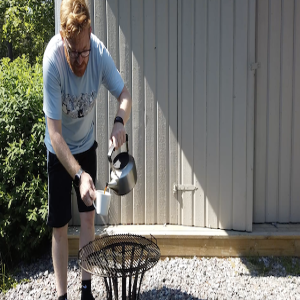
Saturday Jun 27, 2020
Episode 607: Ethiopia Banko Gutiti Washed
Saturday Jun 27, 2020
Saturday Jun 27, 2020
Ethiopia is widely considered to be the birthplace of coffee, and it's the only indigenous place in which coffee grows. Some of the plant stock can only be found in Ethiopia and has the ability to offer some of the most amazing and diverse cup profiles. With this diversity comes all manner of coffees from different ends of the spectrum (I have tasted many very ordinary lots that I would never stock) and it's why Africa remains a tough place for us to find consistent and amazing coffee – but I have also tasted some of the most special coffees ever from this region, and Africa has the ability to show the non-believers that coffee can taste of other things.
Located in the the Kochere Region, near Yirgacheffe, is the Banko Gutiti Mill, where the combination of high altitude, fertile soil, consistent and plentiful rains, and an abundance of local knowledge all come together to produce, arguably, some of the most in-demand coffee in the world. Owned by Alemu Bukato, and in the ‘Southern Nations, Nationalities & Peoples’ (SNNP) region of Ethiopia, there are almost 650 smallholders who contribute to the coffee produced at this mill! These smallholders typically have a very small (hence the name!) patch of land, on which they grow their coffee, and they are able to bring their ripe coffee cherries to this wetmill for sorting, processing and selling.
Once the cherries are delivered to the wetmill, they are carefully sorted and pulped, before being fermented for 36-48 hours, depending on the climate and humidity conditions. Once the cherries have been fermented, the coffee is thoroughly washed and graded by bean density before being dried in the sun on raised African beds for 12 - 15 days. During this drying period, there's a lot that goes in to making sure the coffee is dried evenly: In the daytime the coffee is raked and turned periodically to ensure a consistent drying process. The coffee is also covered between 12pm and 3pm to protect it from the hot sun, and at night time to protect it from rainfall and moisture. This requires a lot of careful attention and we think it really shows in the cup!
Up front this is lemon cordial, refreshing but also sweet and juicy. There’s a hint of black tea on the finish and a delicate floral edge running through it all, but the citrus is the there again on the aftertaste as orange zest and reminds us this one is all about the fruit.
- Country: Ethiopia
- Region: Gutiti Kebele
- District: Kochere
- Mill location: Banko Gutiti
- Mill Manager: Alemu Bukato
- Varietal: Indigenous wild
- Processing: Washed
- Altitude: 1,900-2,100 m.a.s.l.
- Rainfall: 1800–2000 mm
- Soil: Fertile, red-brown, well drained
CUPPING NOTES
Lemon cordial, black tea, orange zest, floral.
Clean cup: (1–8): 7
Sweetness: (1–8): 6.5
Acidity: (1–8): 7
Mouthfeel: (1–8): 6.5
Flavour: (1–8): 6.5
Aftertaste: (1–8): 6
Balance: (1–8): 6
Overall: (1–8): 7.5
Correction: (+36): +36
Total (max. 100): 88
Roast Information
Medium – Don't go too slow - you want to highlight the lovely zing of the lemon. Push it through first crack and drop it once you're in the gap.


